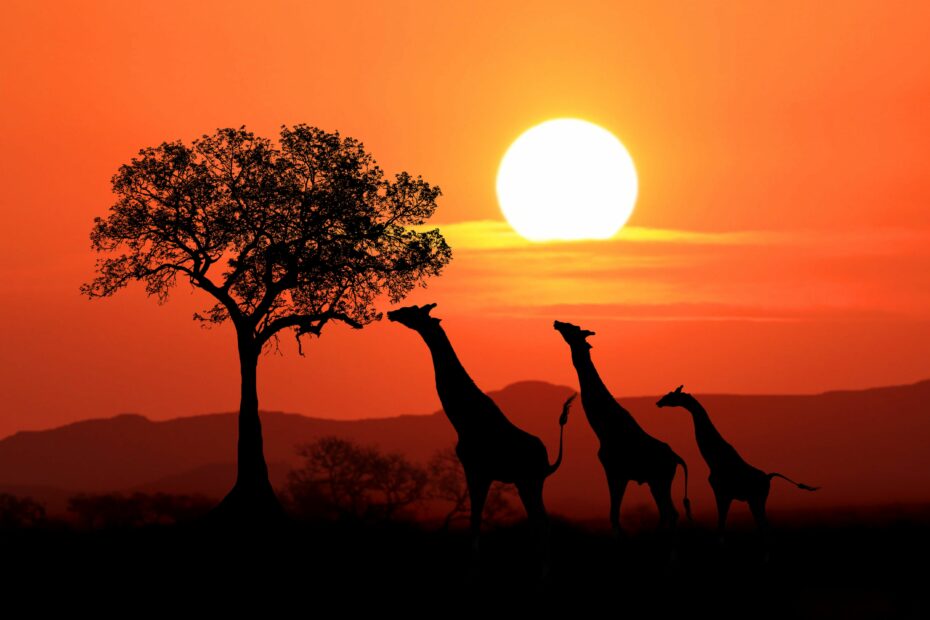Africa, the second-largest continent on Earth, is a tapestry of nations rich in cultural, historical, and geographical diversity. From the vast Sahara Desert to the lush rainforests and from the towering Atlas Mountains to the vibrant coastal cities, Africa is a continent that captivates with its unique charm. In this article, we will take a closer look at each African country, highlighting key information such as the capital city, population, date of independence, national language, and a distinctive aspect that sets each nation apart.
African Diversity: A Continent of Contrasts
Africa is a continent of stark contrasts. While some countries boast bustling metropolises and modern infrastructure, others still struggle with poverty and underdevelopment. This diversity also extends to the cultural and ethnic makeup of each nation. With over 3,000 distinct ethnic groups speaking more than 2,000 languages, Africa is a melting pot of cultures, traditions, and beliefs. From the Berbers in North Africa to the Zulus in South Africa, each group contributes to the vibrant diversity of the continent.
A Glimpse into Each African Nation
Algeria
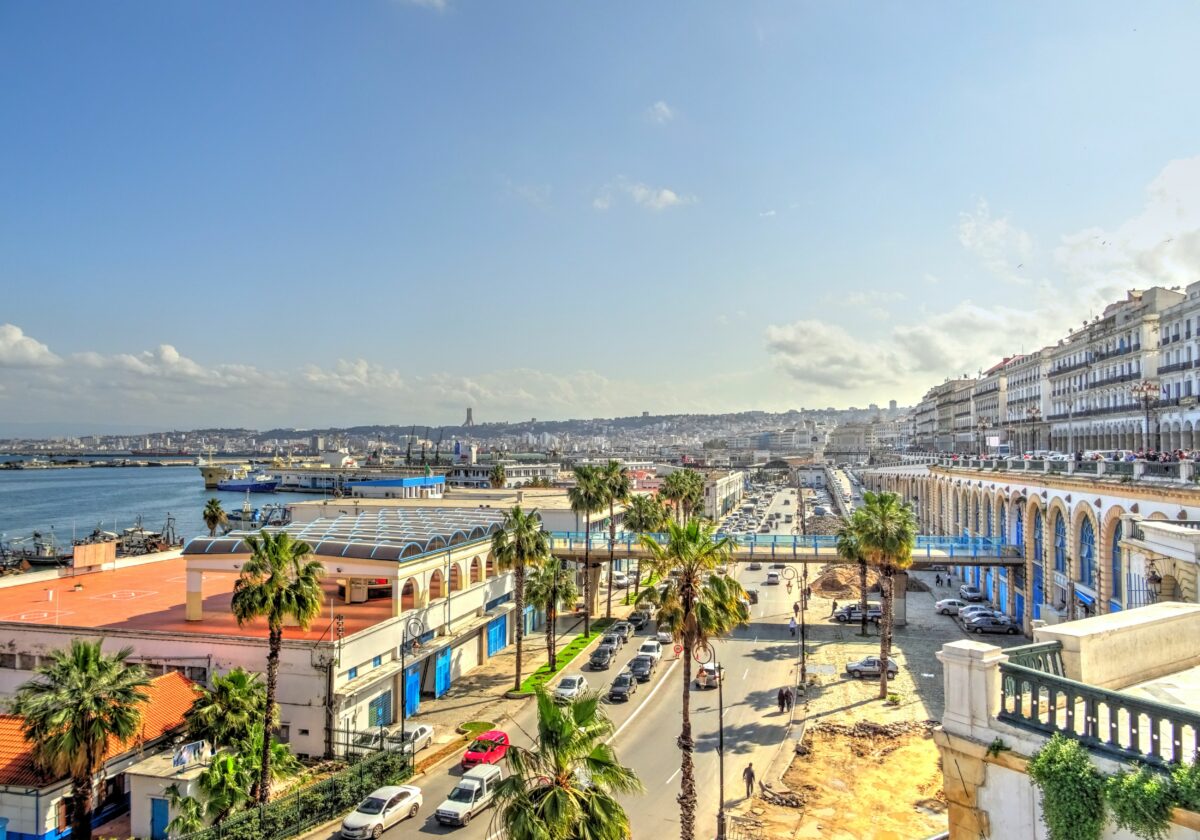
- Size: 2,381,740 km²
- Capital: Algiers
- Population: 45.6 million
- Independence: July 3, 1962
- National Language: Arabic and Berber
Algeria, a country in North Africa, is known for its rich history, diverse culture, and breathtaking landscapes. From the bustling streets of its vibrant cities to the serene beauty of the Sahara Desert, Algeria offers a unique blend of ancient traditions and modern influences. With attractions like the Tassili n’Ajjer National Park, famous for its prehistoric rock art and stunning landscapes, Algeria is a destination that captivates travelers with its natural beauty and cultural heritage.
Angola
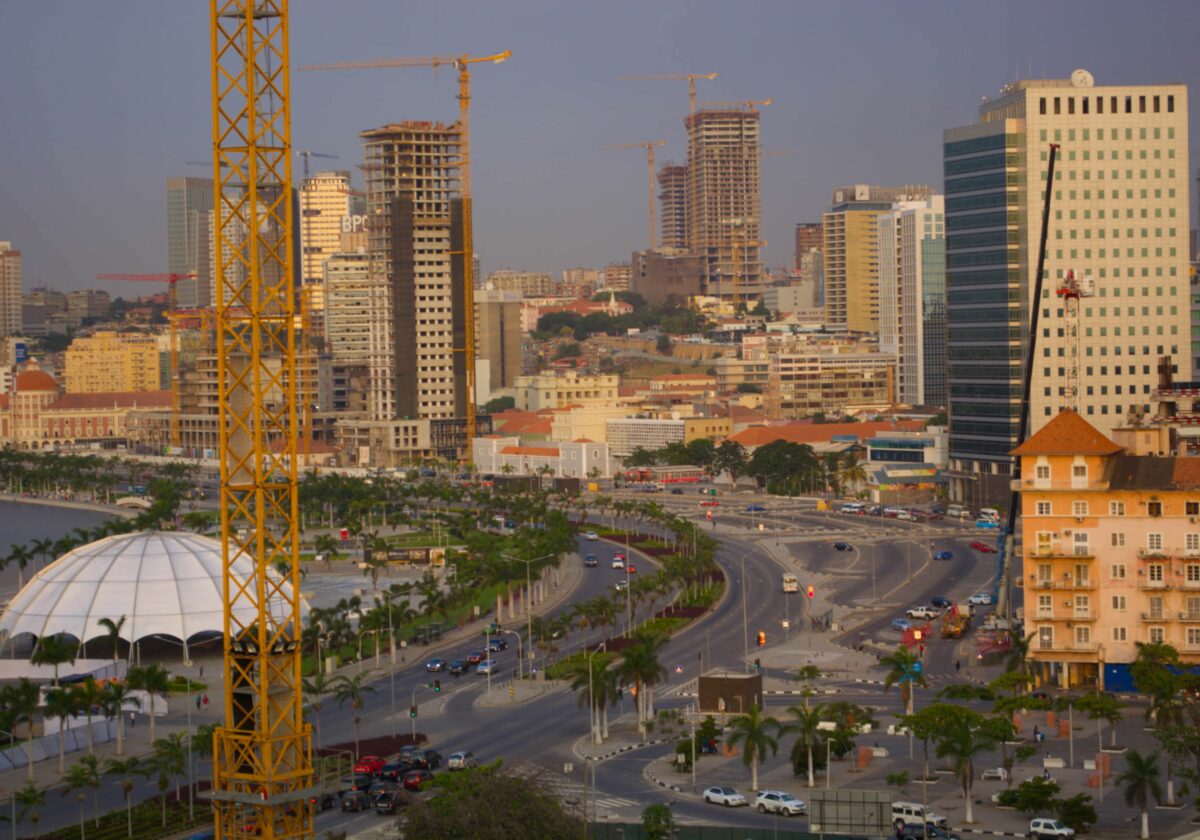
- Size: 1,246,700 km²
- Capital: Luanda
- Population: 34.9 million
- Independence: November 11, 1975
- National Language: Portuguese
Angola is a country located in Southern Africa. It is known for its diverse landscapes, including beautiful coastlines, vast deserts, and lush rainforests. Angola is rich in natural resources, particularly oil and diamonds. The country has a rich cultural heritage, blending native African traditions and Portuguese influences. With its unique features like the Kalandula Falls, Angola offers visitors a chance to explore its natural wonders and experience its vibrant culture.
Benin
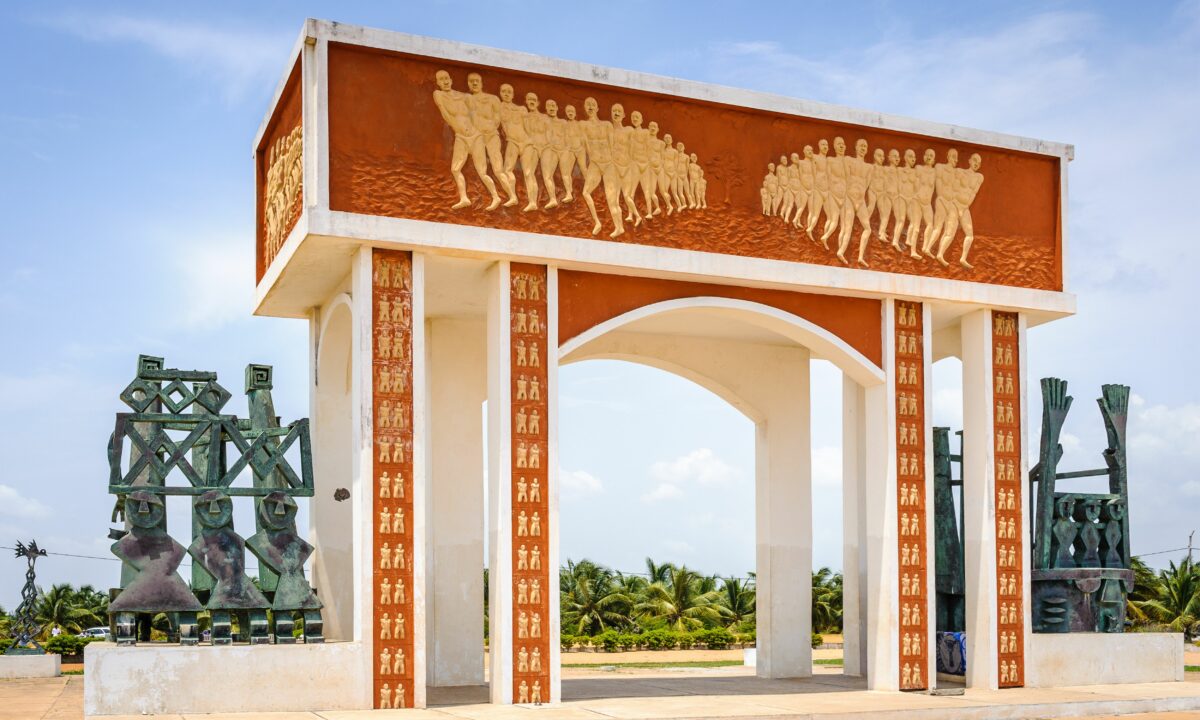
- Size: 112,760 km²
- Capital: Porto-Novo (official), Cotonou (economic)
- Population: 13.7 million
- Independence: August 1, 1960
- National Language: French
Benin, a country in West Africa, is known for its rich cultural heritage and historical landmarks. One of its unique features is the Royal Palaces of Abomey, which offer a glimpse into the fascinating history of the Dahomey Kingdom. With its diverse landscapes, vibrant markets, and warm hospitality, Benin is a destination that captivates visitors with its unique blend of tradition and modernity. Read Also: Exploring Africa’s top 9 largest cities in 2023
Botswana
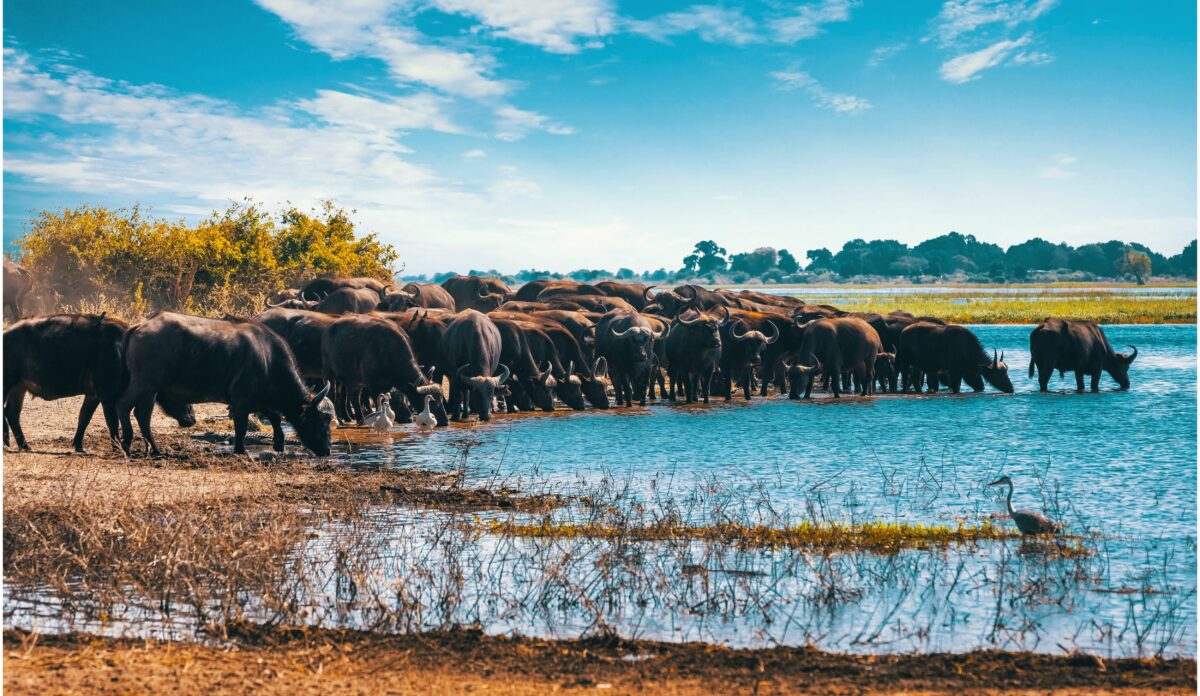
- Size: 566,730 km²
- Capital: Gaborone
- Population: 2.4 million
- Independence: September 30, 1966
- National Language: Setswana
Botswana in Southern Africa is known for its remarkable natural beauty and abundant wildlife. With attractions like the Okavango Delta, the world’s largest inland delta, Botswana offers nature enthusiasts a unique and breathtaking experience. The country is home to diverse ecosystems, including vast savannas, lush wetlands, and expansive deserts, making it a haven for wildlife.
Visitors can witness stunning landscapes, encounter majestic animals such as elephants, lions, and giraffes, and immerse themselves in the rich cultural heritage of the local communities. Botswana truly showcases the wonders of Africa and provides an unforgettable adventure for travelers.
Burkina Faso
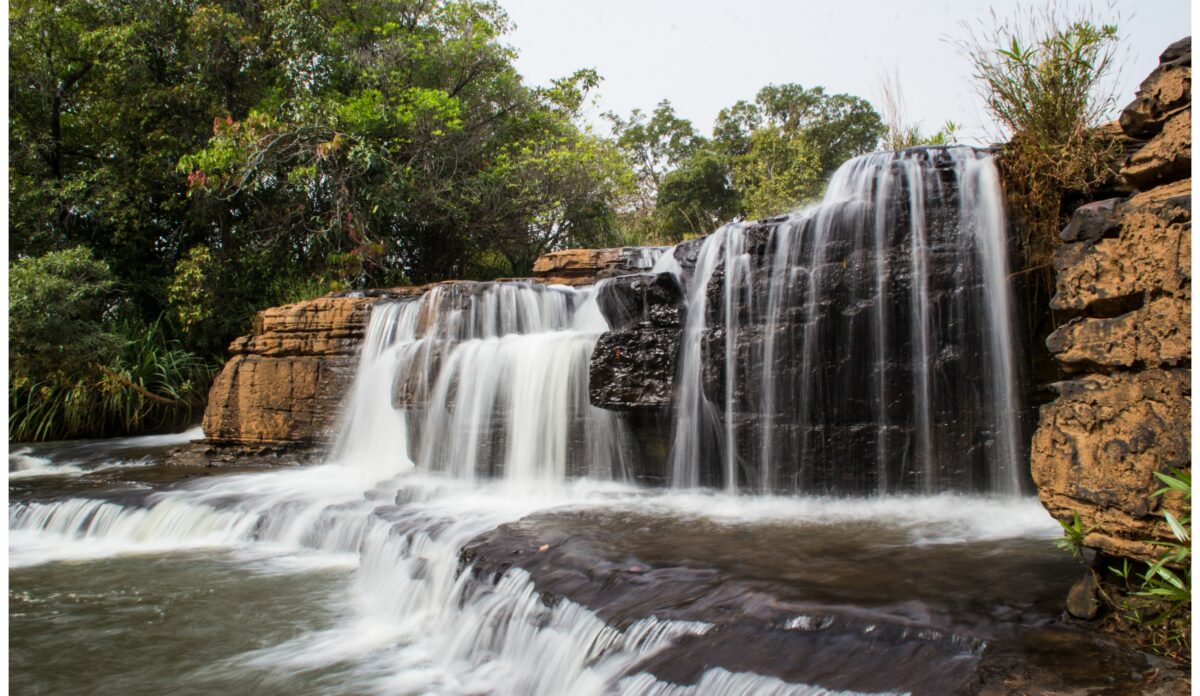
- Size: 273,600 km²
- Capital: Ouagadougou
- Population: 22.4 million
- Independence: August 5, 1960
- National Language: French
Burkina Faso, located in West Africa, is known for its rich cultural heritage and natural beauty. With its vibrant markets, traditional music, and warm hospitality, Burkina Faso offers a unique experience for travelers. One of its notable attractions is the Ruins of Loropéni, an ancient archaeological site, and a UNESCO World Heritage site. These ruins provide a glimpse into the country’s historic past and a testament to its fascinating history. Whether exploring its diverse landscapes, immersing in local traditions, or discovering hidden gems like the Ruins of Loropéni, Burkina Faso offers adventurers and culture enthusiasts a memorable journey.
Burundi
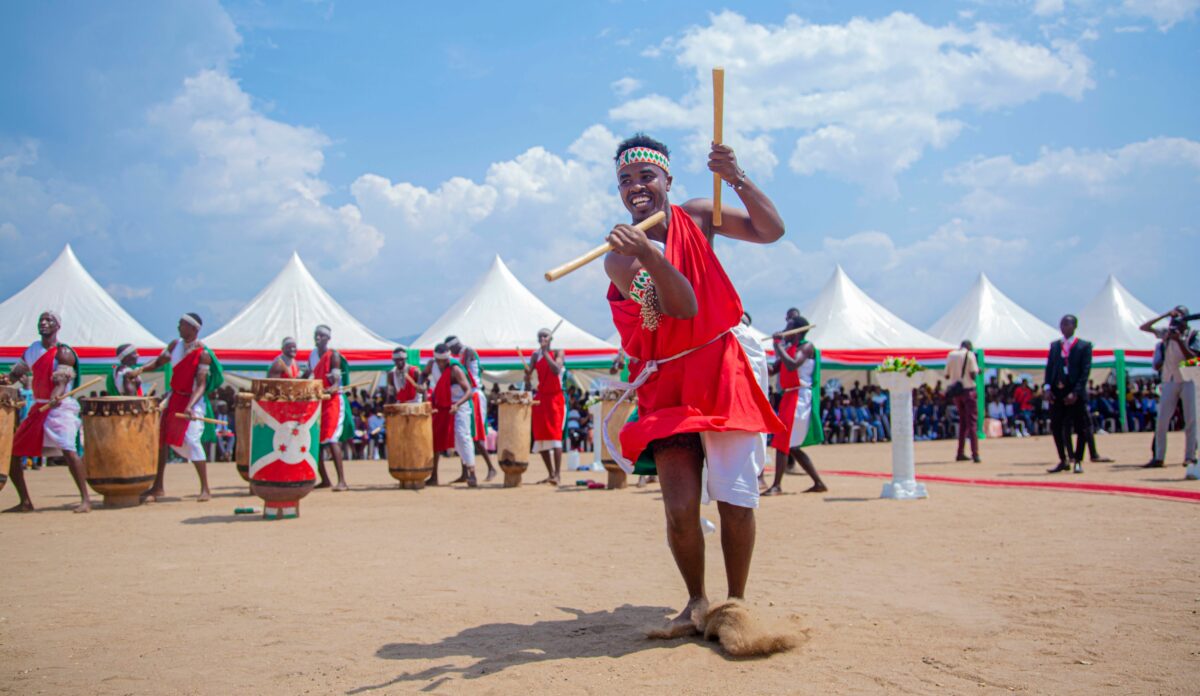
- Size: 25,680 km²
- Capital: Bujumbura
- Population: 12.7 million
- Independence: July 1, 1962
- National Language: Kirundi, French, and English
Burundi, a landlocked country in East Africa, is known for its unique features. One of its remarkable highlights is Lake Tanganyika, the second-deepest lake in the world. Burundi shares this magnificent lake with several other African nations. With its diverse landscapes and natural wonders, Burundi offers visitors a rich and captivating experience.
Cabo Verde (Cape Verde)
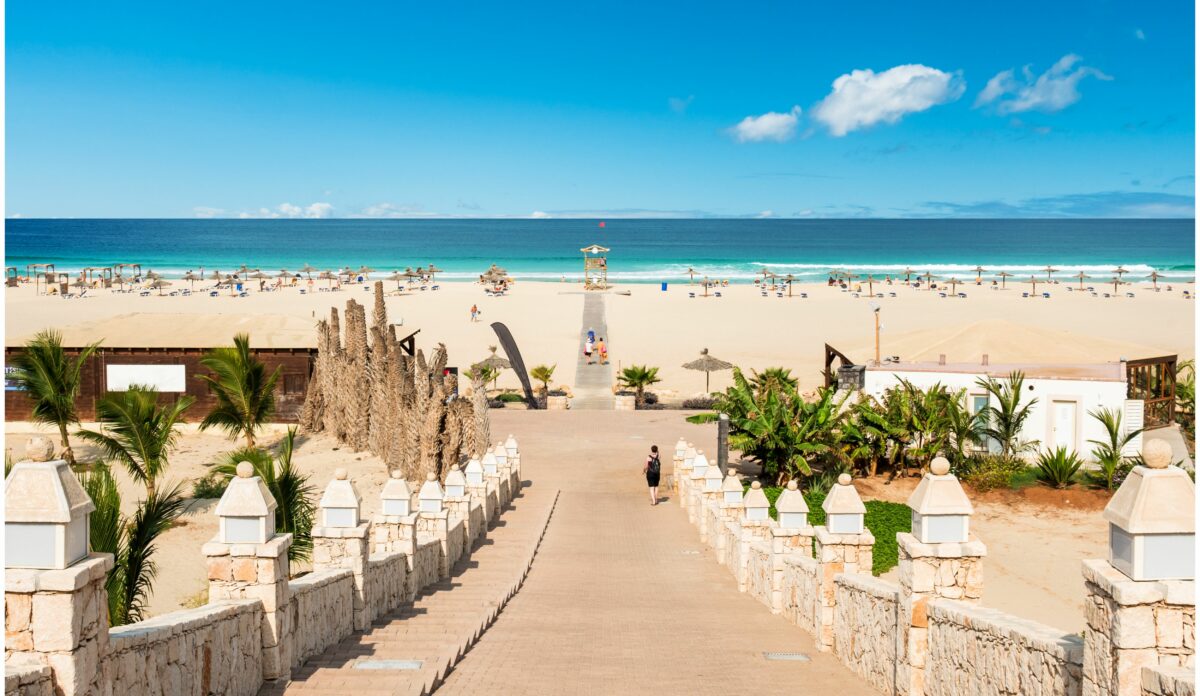
- Size: 4,030 km²
- Capital: Praia
- Population: 0.5 million
- Independence: July 5, 1975
- National Language: Portuguese
Cabo Verde, also known as Cape Verde, is a captivating archipelago off the coast of West Africa. This stunning destination boasts unique features such as volcanic landscapes and vibrant colonial architecture, particularly on the island of Fogo. With its picturesque beauty and rich cultural heritage, Cabo Verde offers a truly unforgettable experience for travelers seeking a blend of natural wonders and historical charm.
Cameroon
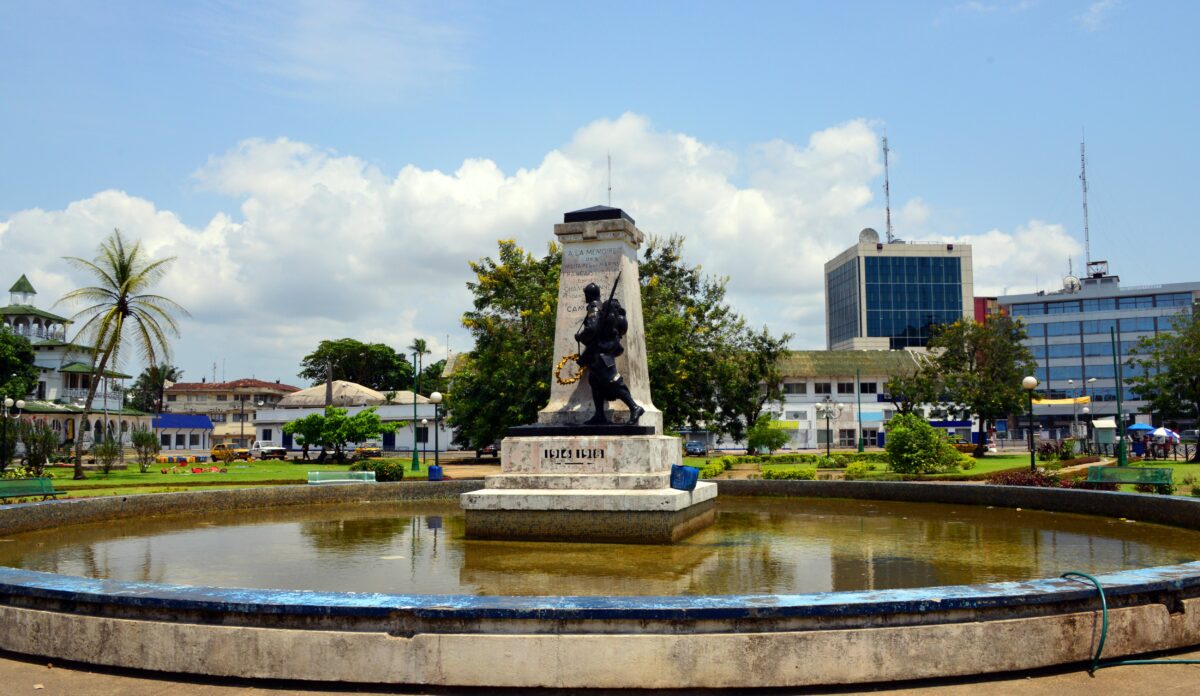
- Size: 472,710 km²
- Capital: Yaoundé
- Population: 28.7 million
- Independence: January 1, 1960
- National Language: English and French
Cameroon, located in West Africa, boasts a unique feature – Mount Cameroon. This active volcano stands as the highest peak in the region, adding to the country’s natural beauty. With diverse landscapes, rich cultural heritage, and vibrant communities, Cameroon offers a captivating experience for visitors. From its stunning national parks to bustling cities, Cameroon embodies the essence of African charm and adventure.
Central African Republic
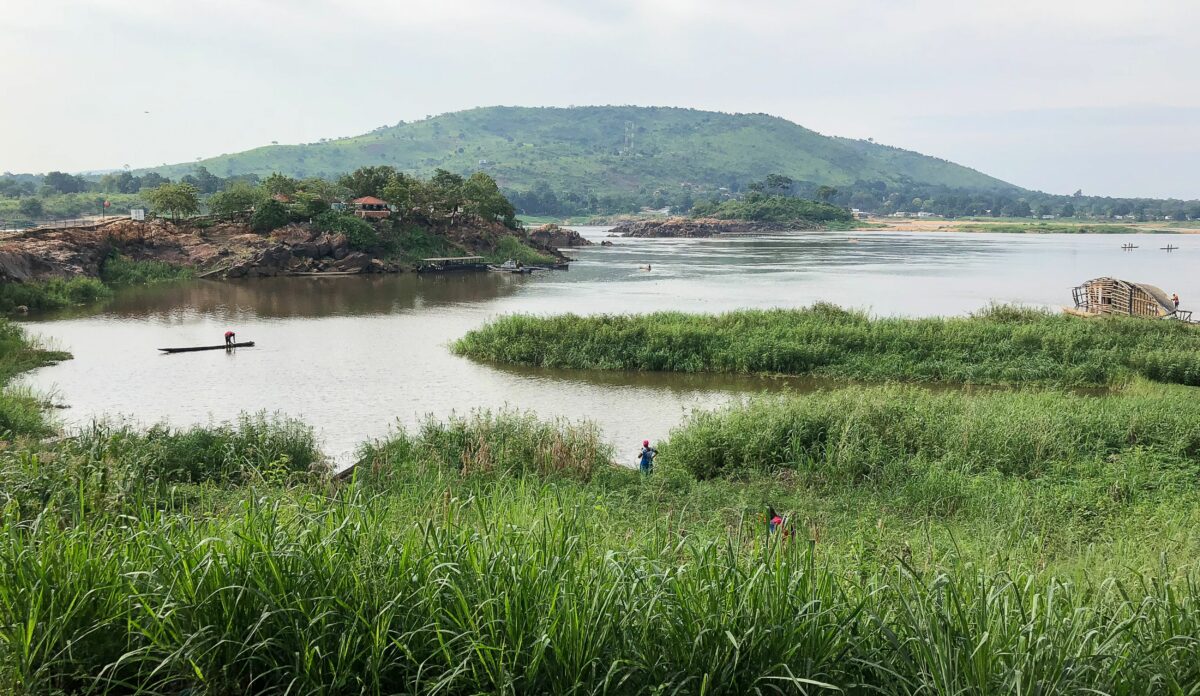
- Size: 622,980 km²
- Capital: Bangui
- Population: 5.6 million
- Independence: August 13, 1960
- National Language: French and Sango
The Central African Republic, located in the heart of Africa, is known for its rich natural beauty and diverse wildlife. One of its unique features is the Dzanga-Sangha National Park, home to many species, including forest elephants and lowland gorillas. The country offers a unique opportunity for nature lovers and wildlife enthusiasts to explore and experience the wonders of its untouched landscapes.
Chad
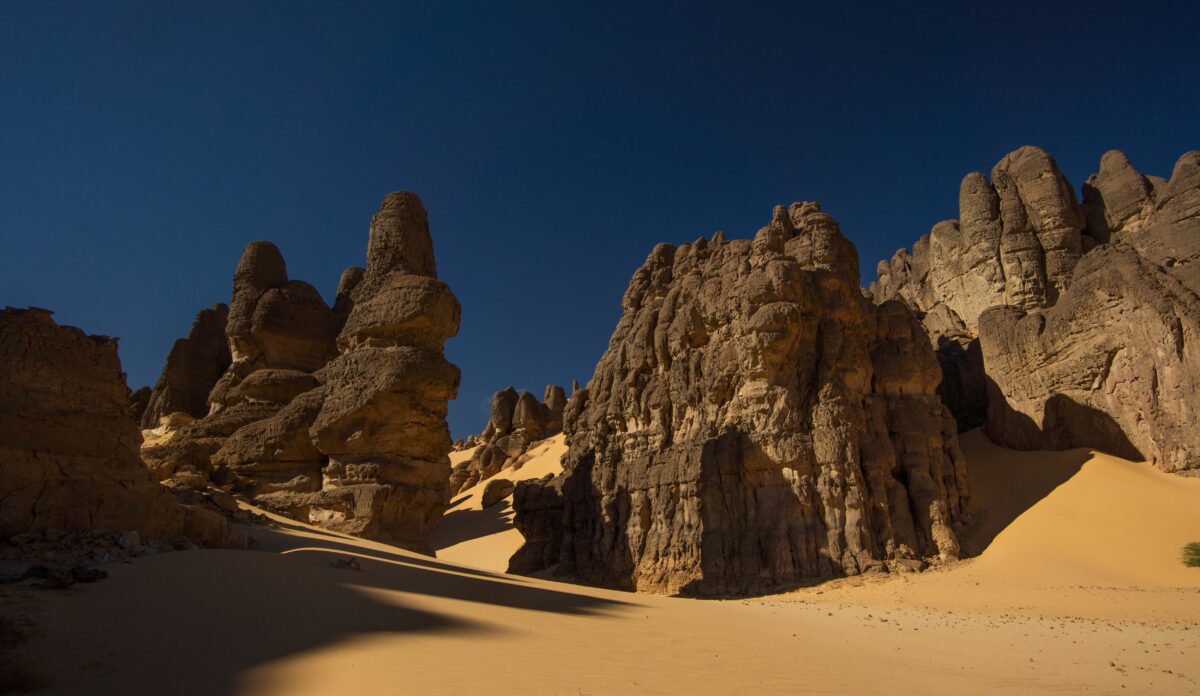
- Size: 1,259,200 km²
- Capital: N’Djamena
- Population: 17.5 million
- Independence: August 11, 1960
- National Language: French and Arabic
Chad is a fascinating country located in Central Africa. It is known for its diverse landscapes, from the Ennedi Plateau with its breathtaking rock formations and prehistoric cave art to the vast Sahara Desert that covers a significant part of the country. Chad is also rich in cultural heritage, vibrant traditions, and a diverse ethnic mix. Its capital city, N’Djamena, blends modernity and traditional charm. With its unique features and rich history, Chad is a destination worth exploring.
Comoros
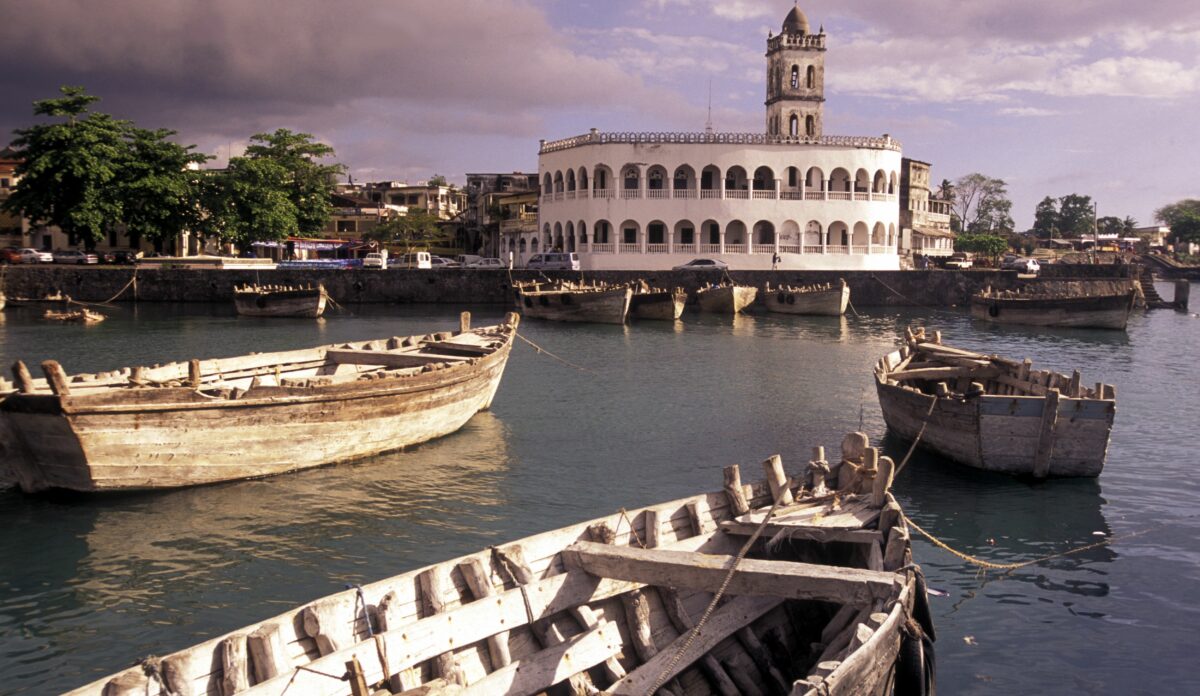
- Size: 1,861 km²
- Capital: Moroni
- Population: 0.9 million
- Independence: July 6, 1975
- National Language: Comorian, Arabic, and French
Comoros, a group of volcanic islands in the Indian Ocean, is known for its unique features. Comoros offers nature enthusiasts and adventure seekers a paradise with its breathtaking landscapes and diverse marine life. From pristine beaches to lush forests, the islands of Comoros boast a rich biodiversity and cultural heritage. Visitors can explore the vibrant markets, indulge in delicious local cuisine, and immerse themselves in the warm hospitality of the Comorian people. Whether you’re seeking relaxation or thrilling experiences, Comoros is a hidden gem waiting to be discovered.
Congo (Congo-Brazzaville)
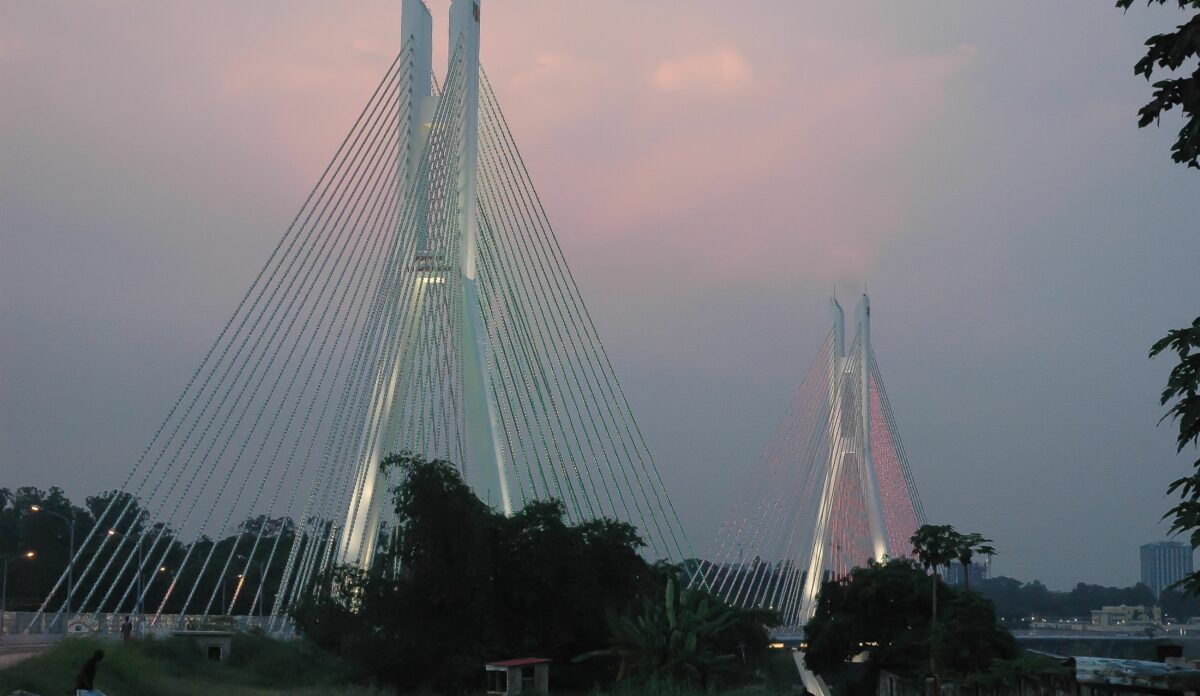
- Size: 341,500 km²
- Capital: Brazzaville
- Population: 87.7 million
- Independence: August 15, 1960
- National Language: French
Congo Brazzaville, officially known as the Republic of the Congo, is in Central Africa. It is renowned for its unique features, including the breathtaking Nouabalé-Ndoki National Park. This national park is a sanctuary for diverse wildlife, offering a haven for various species to thrive. From magnificent elephants and majestic gorillas to colorful birds and elusive big cats, the park showcases the rich biodiversity of Congo Brazzaville. With its natural beauty and conservation efforts, Congo Brazzaville is a captivating destination for nature enthusiasts and wildlife lovers.
Democratic Republic of the Congo (DRC)
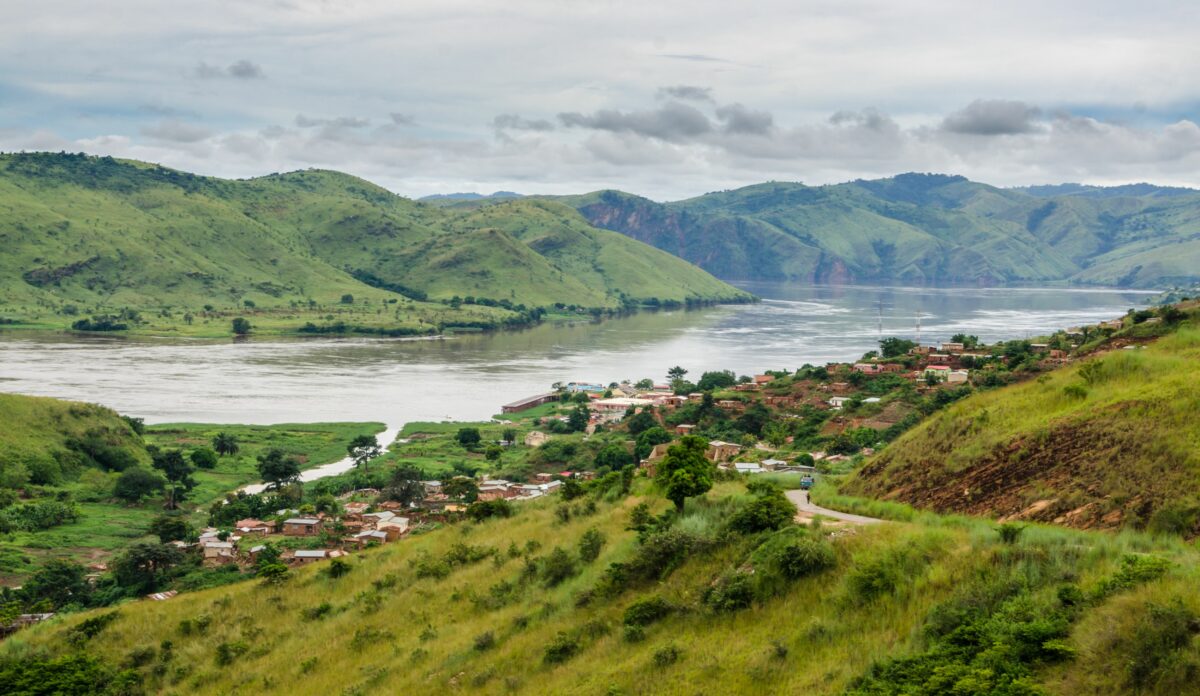
- Size: 2,344,858 km²
- Capital: Kinshasa
- Population: 97.7 million
- Independence: June 30, 1960
- National Language: French
Congo DRC, also known as the Democratic Republic of the Congo, is a country in Central Africa. It boasts a unique feature, the Virunga National Park, which serves as a sanctuary for endangered mountain gorillas. With its rich biodiversity and natural landscapes, Congo DRC offers a remarkable experience for nature enthusiasts and adventurers. Read Also: Debunking Common Stereotypes and Misconceptions About Africa
Djibouti
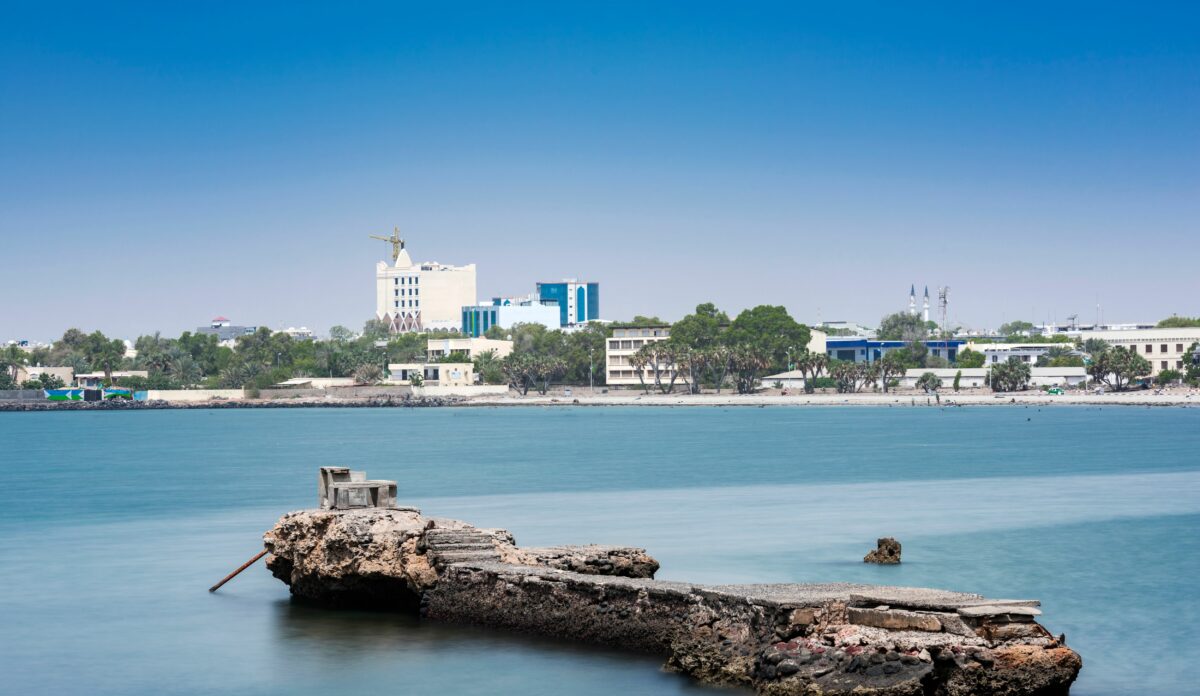
- Size: 23,200 km²
- Capital: Djibouti City
- Population: 1.0 million
- Independence: June 27, 1977
- National Language: French and Arabic
Djibouti, a small country in the Horn of Africa, has a unique feature that sets it apart – Lake Assal. This extraordinary lake is the third-lowest point on Earth and is also renowned as the saltiest lake outside Antarctica. Djibouti’s natural wonders, cultural diversity, and rich history make it a fascinating destination.
Egypt
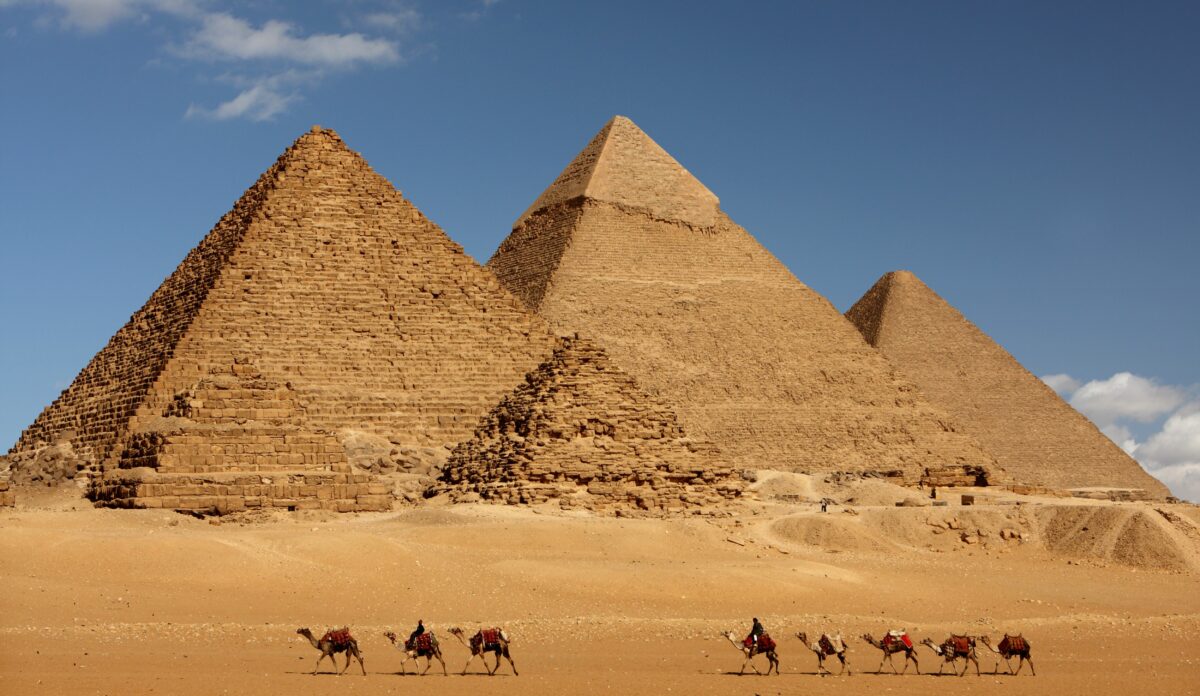
- Size: 1,002,450 km²
- Capital: Cairo
- Population: 105.3 million
- Independence: February 28, 1922
- National Language: Arabic
Egypt is a captivating country with a rich history and vibrant culture. From the iconic Great Pyramid of Giza, a testament to ancient engineering, to the bustling streets of Cairo, Egypt offers a unique blend of ancient wonders and modern charm. Explore the Nile River, visit the awe-inspiring temples of Luxor, or simply immerse yourself in the warmth and hospitality of the Egyptian people. With its fascinating heritage and timeless beauty, Egypt is a destination that never fails to leave a lasting impression.
Equatorial Guinea
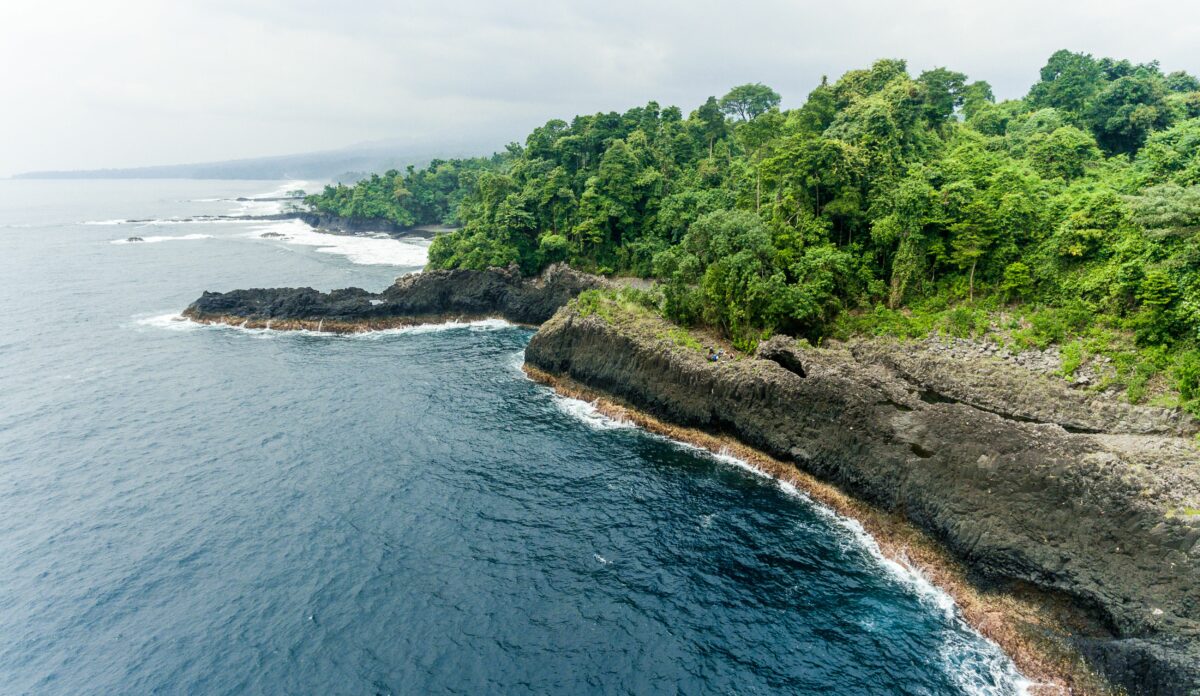
- Size: 28,051 km²
- Capital: Malabo
- Population: 1.5 million
- Independence: October 12, 1968
- National Language: Spanish, French, and Portuguese
Equatorial Guinea, a small country in Central Africa, is known for its unique features. One of these features is Bioko Island, which is home to a remarkable biodiversity. With its stunning landscapes and rich natural resources, Equatorial Guinea offers a glimpse into the beauty and diversity of the African continent.
Eritrea
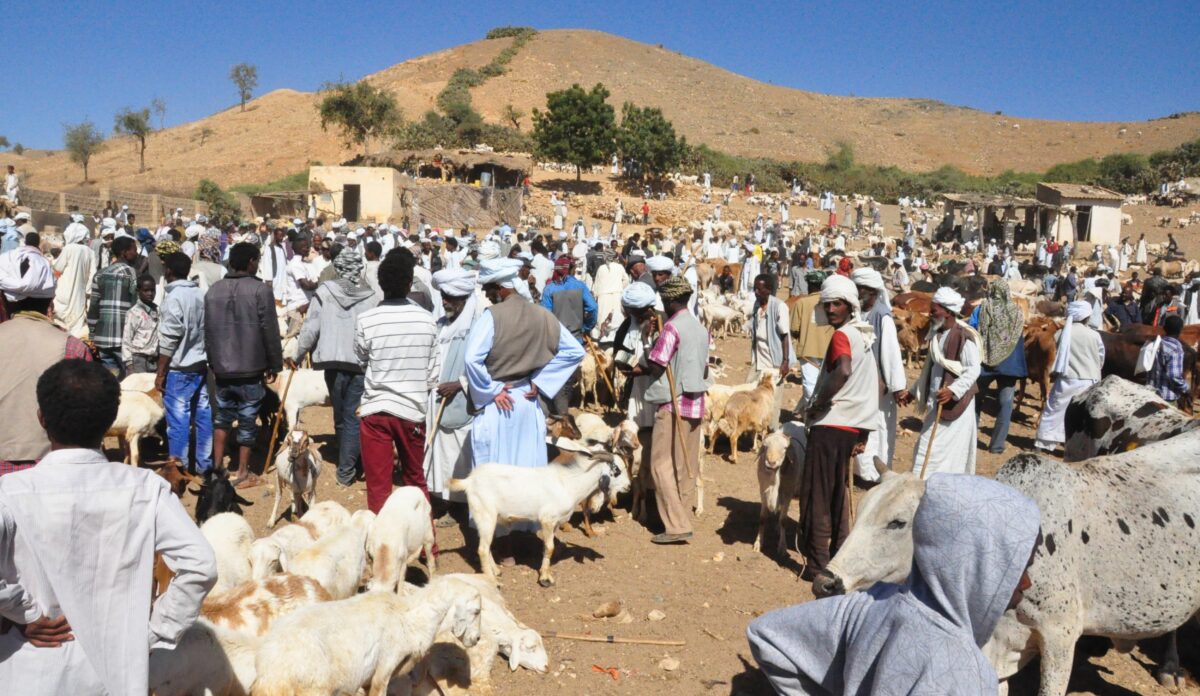
- Size: 117,600 km²
- Capital: Asmara
- Population: 3.7 million
- Independence: May 24, 1993
- National Language: Tigrinya, Arabic, and English
Eritrea, located in the Horn of Africa, is known for its rich history and diverse culture. From the ancient port city of Adulis to the breathtaking landscapes of the Dahlak Archipelago, Eritrea offers a unique experience for travelers. With its vibrant markets, delicious cuisine, and warm hospitality, Eritrea is a hidden gem waiting to be explored.
Eswatini (Swaziland)
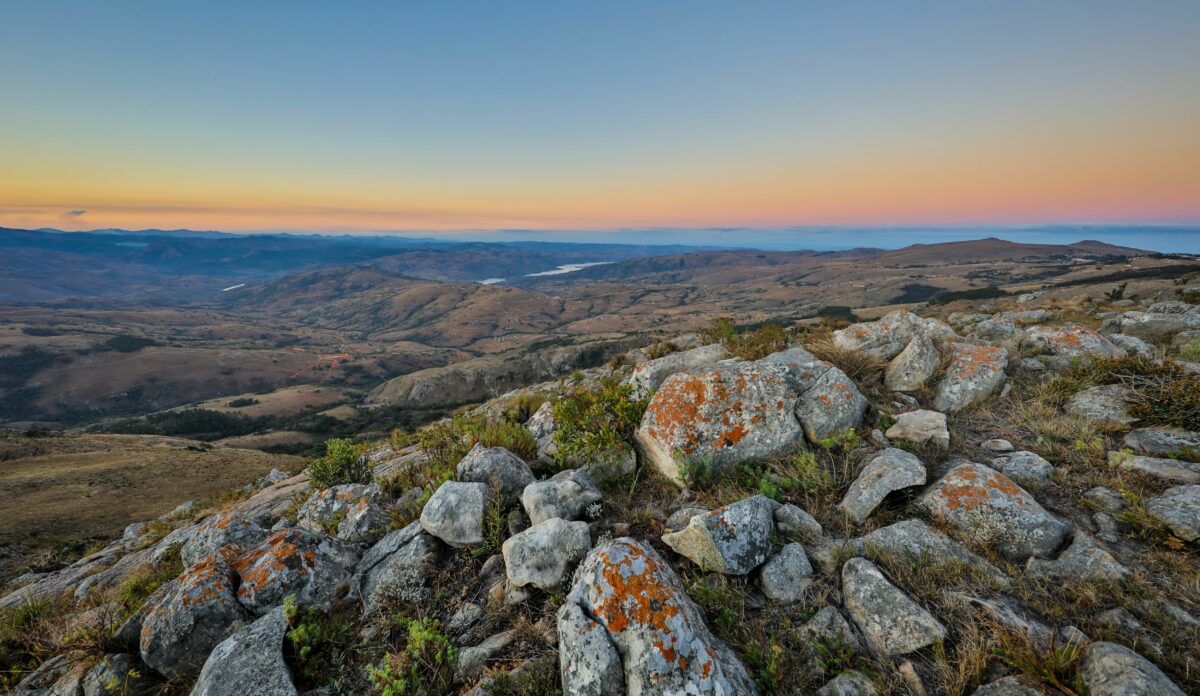
- Size: 17,364 km²
- Capital: Mbabane
- Population: 1.2 million
- Independence: September 6, 1968
- National Language: Swazi (siSwati) and English
Eswatini, a small landlocked country in Southern Africa, is known for its rich cultural heritage and breathtaking wildlife. With its unique feature being Hlane Royal National Park, visitors can experience the beauty of nature and witness a wide range of animals in their natural habitat. The park offers a memorable safari experience, from majestic lions to graceful antelopes. Moreover, the country’s warm and welcoming people embrace their traditions and customs, creating a vibrant and diverse cultural atmosphere. Eswatini offers a delightful blend of nature, wildlife, and cultural significance.
Ethiopia
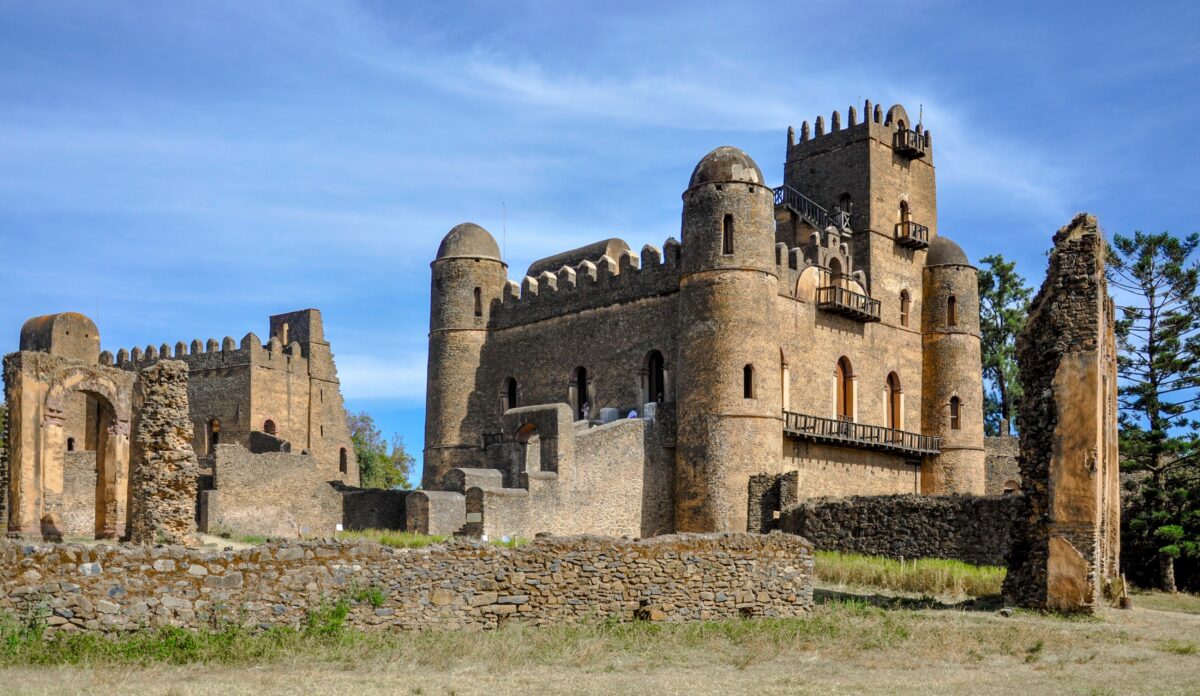
- Size: 1,104,300 km²
- Capital: Addis Ababa
- Population: 121.6 million
- Independence: May 5, 1941 (occupied by Italy 1936-1941)
- National Language: Amharic
Ethiopia, a country in East Africa, is known for its rich history, diverse culture, and stunning landscapes. From the ancient obelisks of Axum to the rock-hewn churches of Lalibela, Ethiopia is home to countless UNESCO World Heritage sites. Its vibrant capital city, Addis Ababa, offers a mix of modernity and traditional charm, with bustling markets, delicious cuisine, and a thriving arts scene. With its warm hospitality and breathtaking natural wonders, such as the Simien Mountains and the Danakil Depression, Ethiopia is a destination that never fails to leave a lasting impression.
Gabon
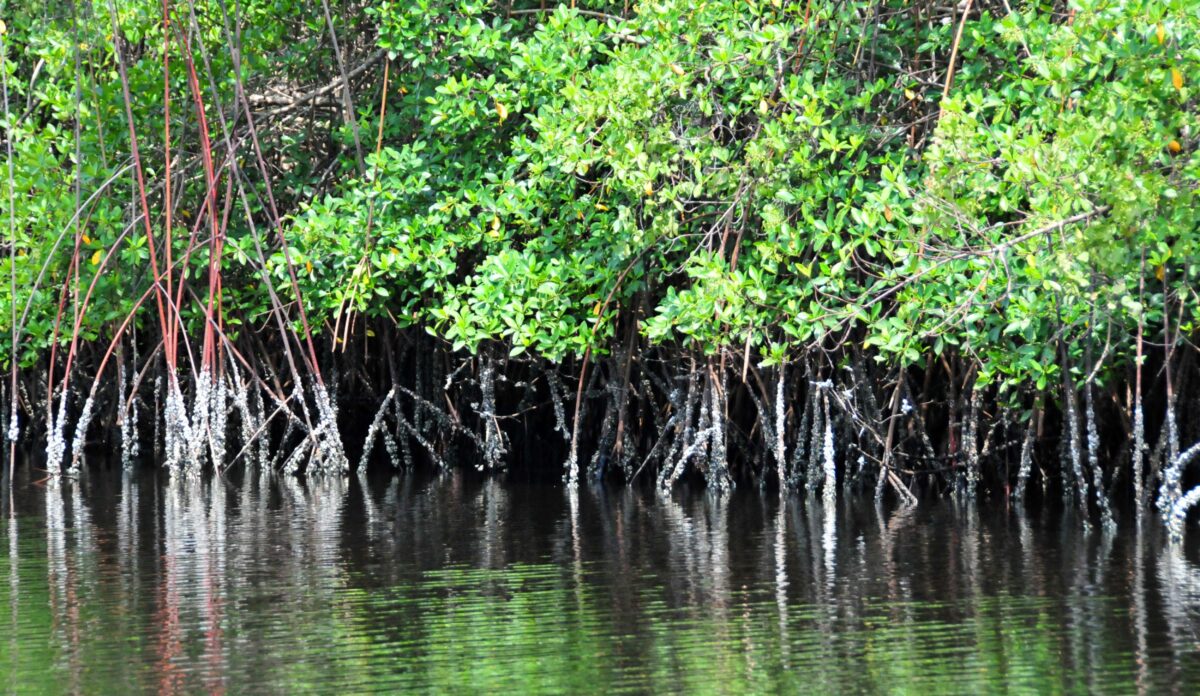
- Size: 267,667 km²
- Capital: Libreville
- Population: 2.3 million
- Independence: August 16, 1960
- National Language: French
Gabon, a country located on the western coast of Central Africa, is known for its rich natural beauty and diverse ecosystems. From the pristine beaches along its coastline to the dense rainforests teeming with wildlife, Gabon offers a unique experience for nature lovers and adventure seekers. The country is also home to Loango National Park, a remarkable destination where savannas, forests, and coastline come together, showcasing Gabon’s incredible biodiversity. With its stunning landscapes and abundant wildlife, Gabon is a true gem waiting to be explored.
The Gambia
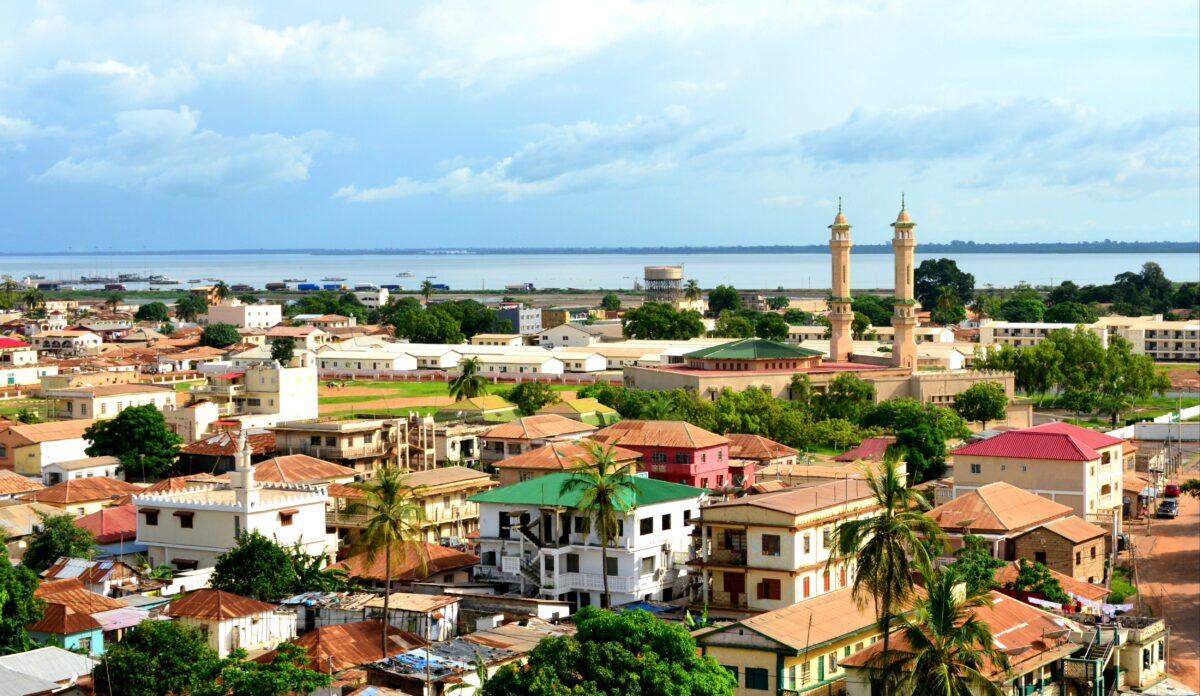
- Size: 10,000 km²
- Capital: Banjul
- Population: 2.5 million
- Independence: February 18, 1965
- National Language: English
Gambia, located in West Africa, is known for its rich history and diverse culture. With its stunning landscapes and vibrant communities, Gambia offers a unique travel experience. From the bustling markets of Banjul to the pristine beaches along the Atlantic coast, there is something for everyone to enjoy. One of its notable attractions is Kunta Kinteh Island, a UNESCO World Heritage site that holds a significant place in history due to its connection to the transatlantic slave trade. Explore the wonders of Gambia and immerse yourself in its fascinating heritage.
Ghana
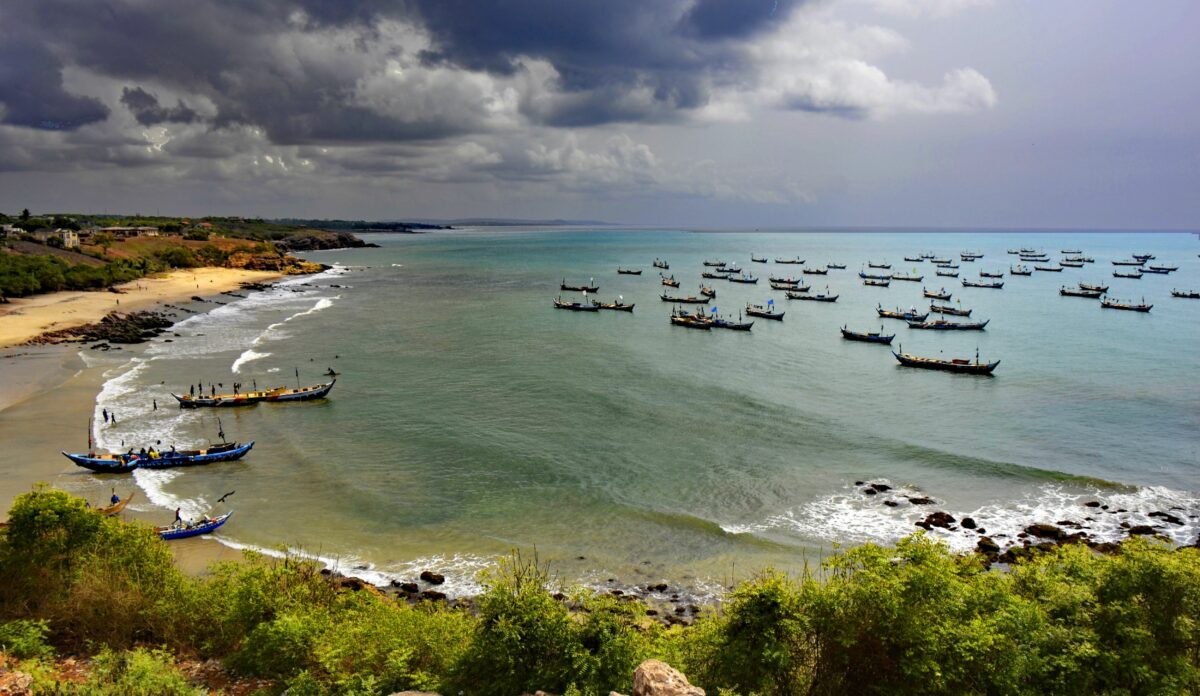
- Size: 238,533 km²
- Capital: Accra
- Population: 32.8 million
- Independence: March 6, 1957
- National Language: English
Ghana, located in West Africa, is known for its rich history and vibrant culture. With a diverse population and stunning landscapes, it offers a unique experience for visitors. From the bustling markets of Accra to the tranquil beaches of Cape Coast, Ghana has something for everyone. Explore its historic landmarks, such as Cape Coast Castle, as a reminder of the country’s past. With warm hospitality and delicious cuisine, Ghana welcomes travelers to discover its beauty and charm.
Guinea
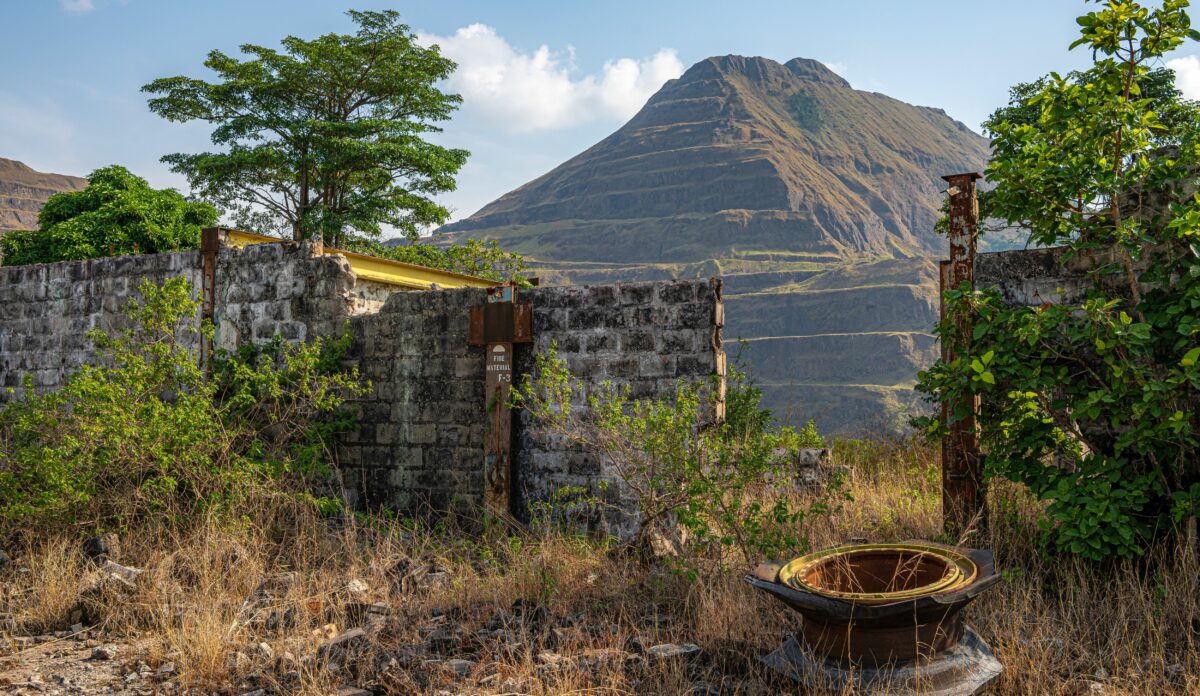
- Size: 245,857 km²
- Capital: Conakry
- Population: 13.9 million
- Independence: October 2, 1958
- National Language: French
Guinea is a country located in West Africa. It is known for its rich cultural heritage, vibrant traditions, and diverse landscapes. From the beautiful Mount Nimba Strict Nature Reserve, a UNESCO World Heritage site with its unique flora and fauna, to the bustling markets and warm hospitality of its people, Guinea offers a truly authentic experience for visitors. With its fascinating history and natural wonders, Guinea is a destination that has something for everyone to enjoy.
Guinea-Bissau
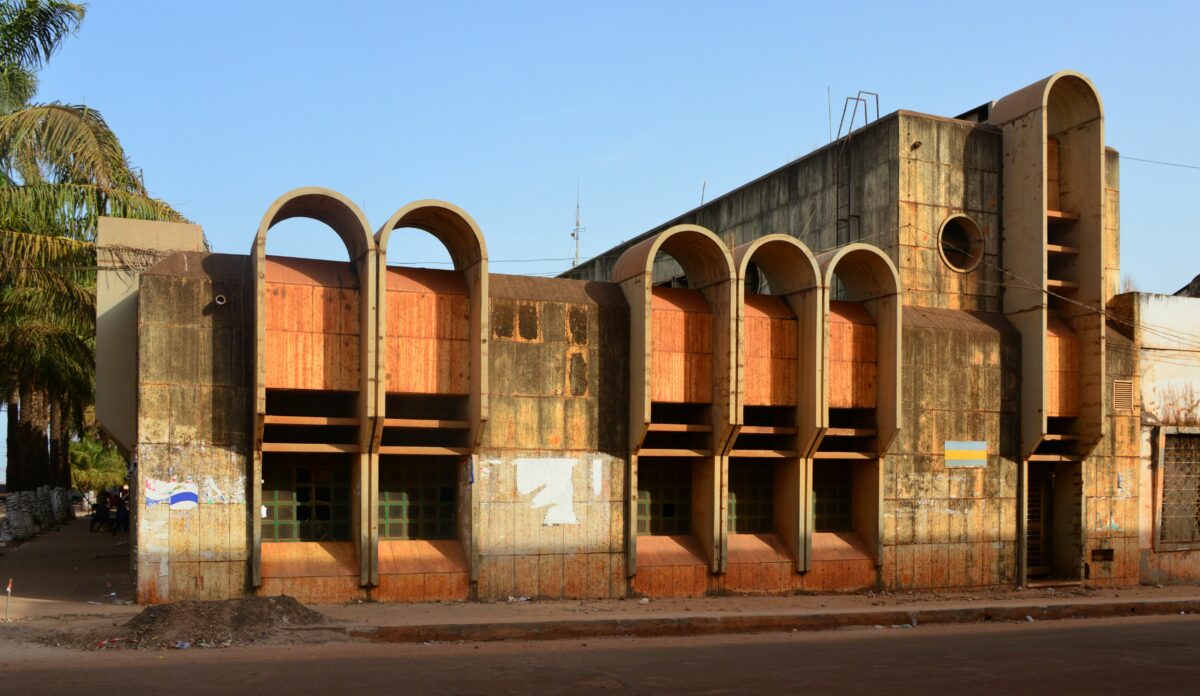
- Size: 36,125 km²
- Capital: Bissau
- Population: 2.0 million
- Independence: September 24, 1973
- National Language: Portuguese and Crioulo
Guinea-Bissau is a small country located on the west coast of Africa. It is known for its beautiful landscapes, including the Bijagós Archipelago, a biosphere reserve with a unique feature of rich biodiversity. The country’s culture is diverse and influenced by its African and Portuguese heritage. With its warm climate and friendly people, Guinea-Bissau offers a unique and authentic travel experience for those looking to explore off the beaten path.
Ivory Coast (Côte d’Ivoire)
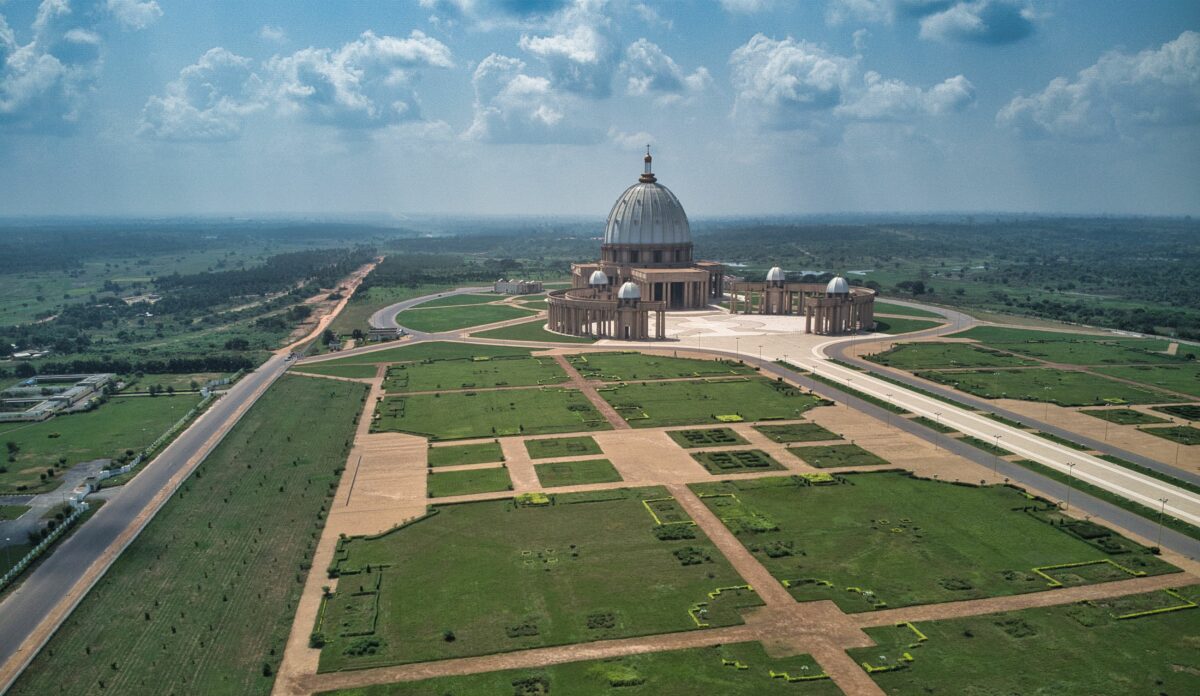
- Size: 318,000 km²
- Capital: Yamoussoukro (political), Abidjan (economic)
- Population: 28.3 million
- Independence: August 7, 1960
- National Language: French
Ivory Coast, located in West Africa, is known for its rich cultural heritage and natural beauty. With stunning landscapes, including the UNESCO World Heritage site Tai National Park, which boasts a tropical rainforest, Ivory Coast offers a unique experience for travelers. From vibrant markets to delicious local cuisine, this country has something to offer for everyone. Explore the diverse wildlife, immerse yourself in the local traditions, and discover the warm hospitality Ivory Coast offers.
Kenya
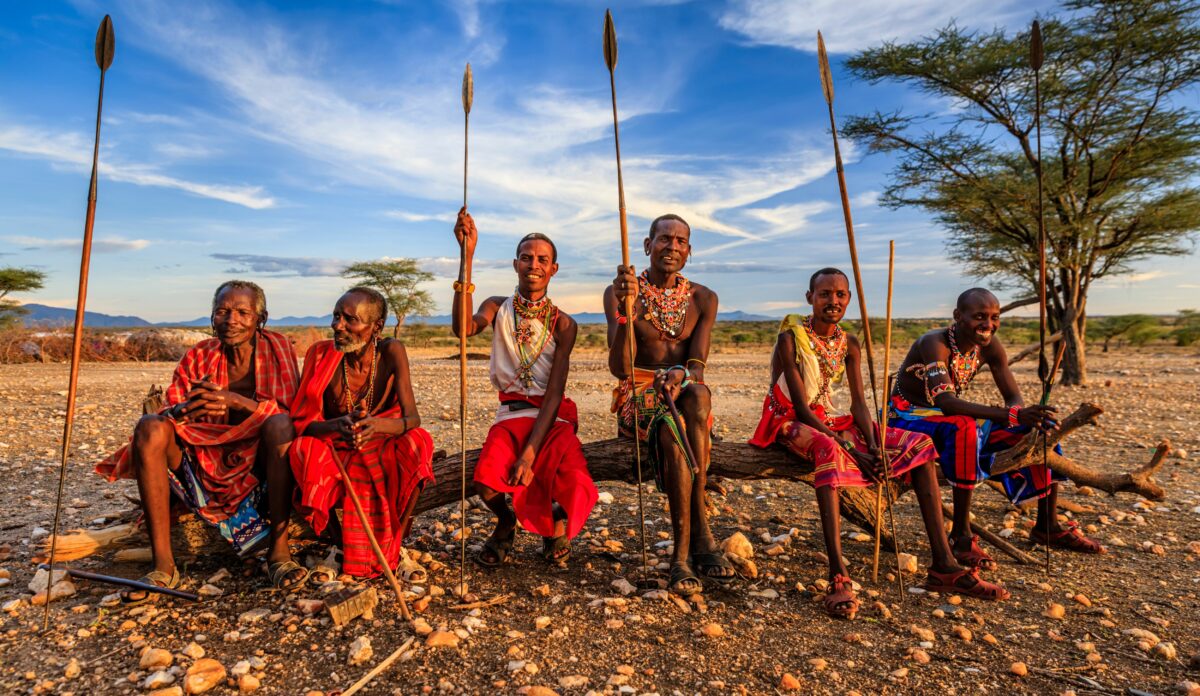
- Size: 580,367 km²
- Capital: Nairobi
- Population: 56.2 million
- Independence: December 12, 1963
- National Language: Swahili and English
Kenya, located in East Africa, is known for its unique features and natural wonders. One of its most remarkable attractions is the Great Rift Valley, a geological marvel that stretches over 7,000 kilometers. From stunning landscapes to diverse wildlife, Kenya offers visitors a rich tapestry of experiences to explore. Whether it’s the iconic Maasai Mara National Reserve, the vibrant culture of Nairobi, or the breathtaking Mount Kenya, this country has something for everyone. Discover the beauty and adventure that awaits in Kenya!
Lesotho

- Size: 30,355 km²
- Capital: Maseru
- Population: 2.2 million
- Independence: October 4, 1966
- National Language: Sesotho and English
Lesotho is a small country nestled in the heart of southern Africa. Known as the “Kingdom in the Sky,” it boasts breathtaking landscapes and a rich cultural heritage. From the majestic Thaba-Bosiu, a sandstone plateau of historical significance, to its warm and welcoming people, Lesotho offers a unique experience for travelers seeking adventure and cultural immersion. Whether exploring the rugged mountains, experiencing traditional Basotho culture, or discovering the country’s vibrant wildlife, Lesotho has something to offer everyone.
Liberia
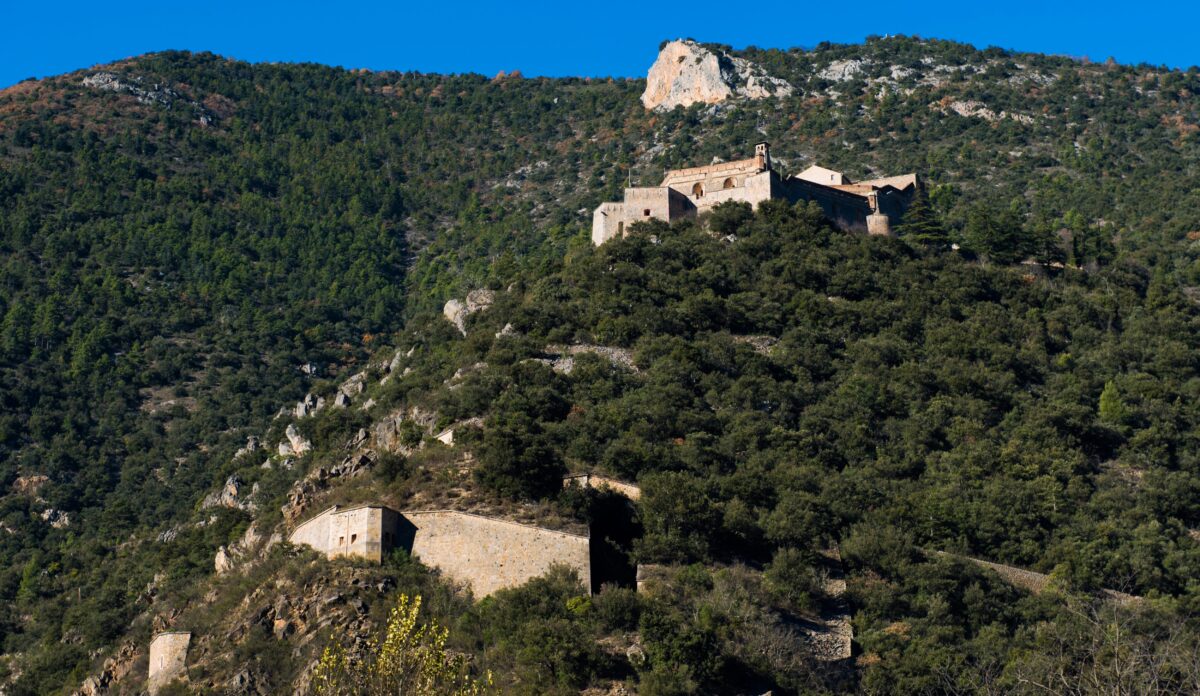
- Size: 111,369 km²
- Capital: Monrovia
- Population: 5.3 million
- Independence: July 26, 1847
- National Language: English
Liberia, located on the west coast of Africa, is known for its rich cultural heritage and natural beauty. With its stunning landscapes and diverse wildlife, Liberia offers a unique experience for travelers. Liberia is a biodiversity hotspot, from the pristine beaches of its coastline to the lush rainforests and national parks, such as the Sapo National Park. The country’s vibrant history and warm hospitality make it an enticing destination for visitors seeking to explore Africa’s wonders.
Libya
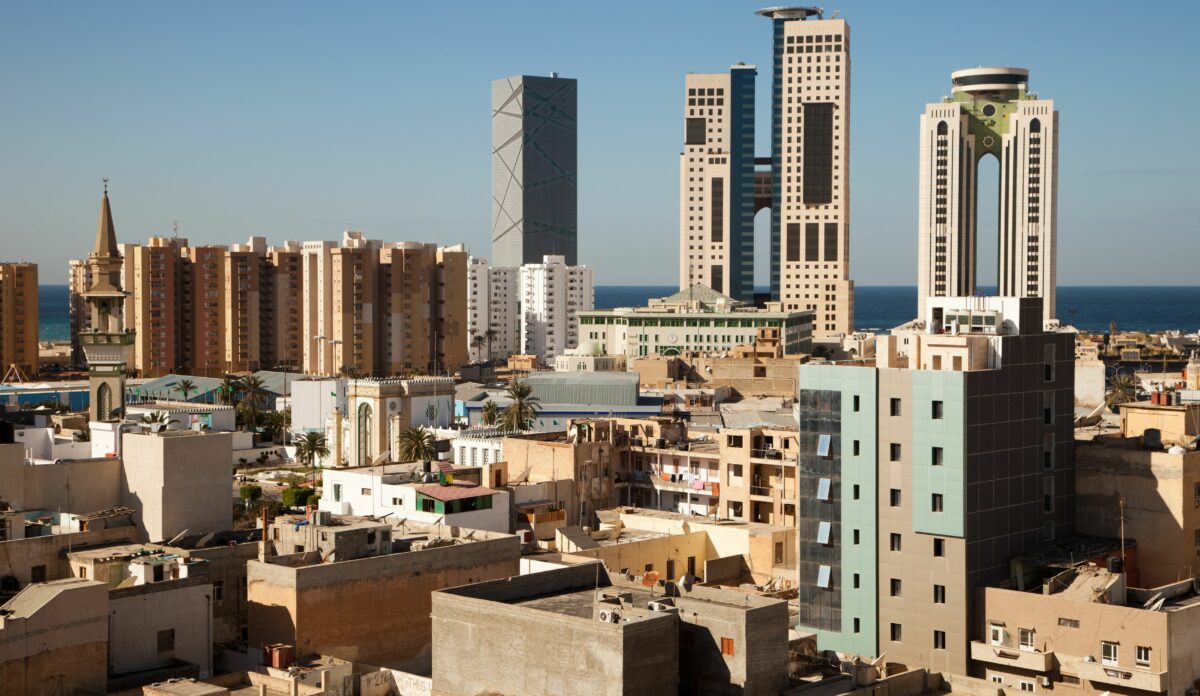
- Size: 1,759,540 km²
- Capital: Tripoli
- Population: 6.9 million
- Independence: December 24, 1951
- National Language: Arabic
Libya is located in North Africa, bordered by the Mediterranean Sea to the north. It is known for its rich history and cultural heritage, with notable landmarks such as the ancient Roman city of Leptis Magna. Libya is also recognized for its vast desert landscapes, including the Sahara Desert, which covers a significant portion of the country. With its diverse geography and historical significance, Libya offers a unique and fascinating experience for travelers and history enthusiasts alike.
Madagascar
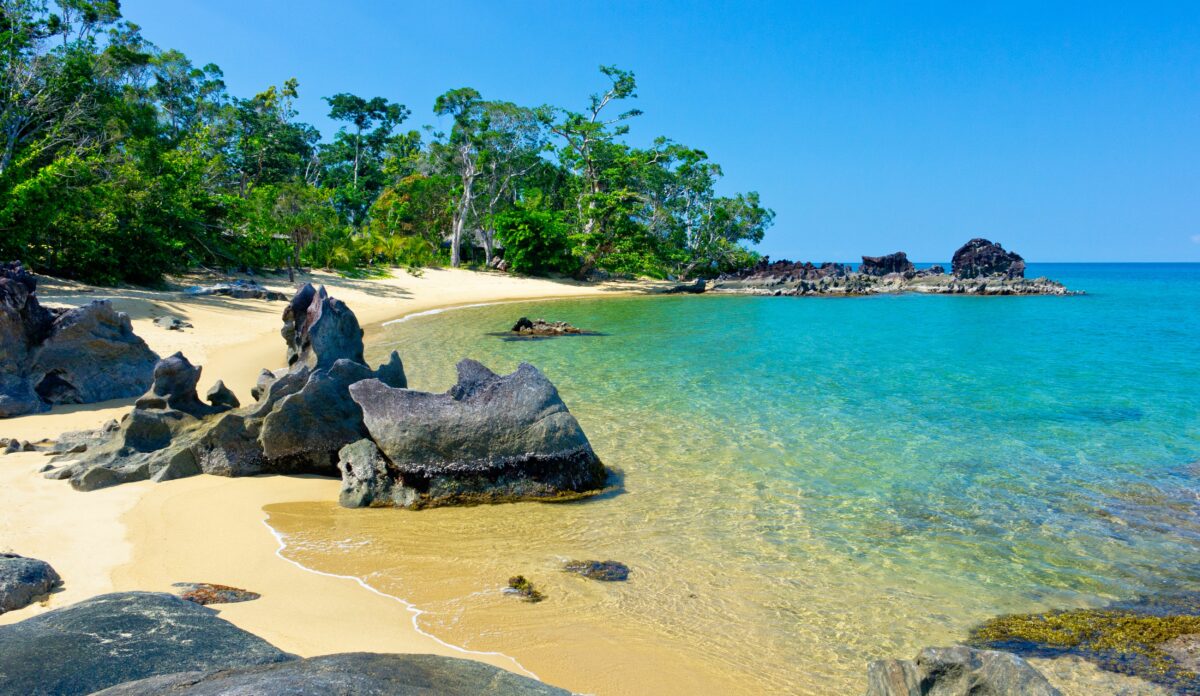
- Size: 587,041 km²
- Capital: Antananarivo
- Population: 30.6 million
- Independence: June 26, 1960
- National Language: Malagasy and French
Madagascar, an island nation off the southeastern coast of Africa, is renowned for its rich biodiversity and unique landscapes. With its diverse ecosystems, from rainforests and deserts to stunning beaches and coral reefs, Madagascar offers a captivating experience for nature lovers and adventure seekers alike. The country is also home to fascinating wildlife, including lemurs, chameleons, and many bird species. Visitors can explore the Avenue of the Baobabs, an iconic natural avenue lined with majestic baobab trees, adding to the enchanting charm of this extraordinary destination.
Malawi
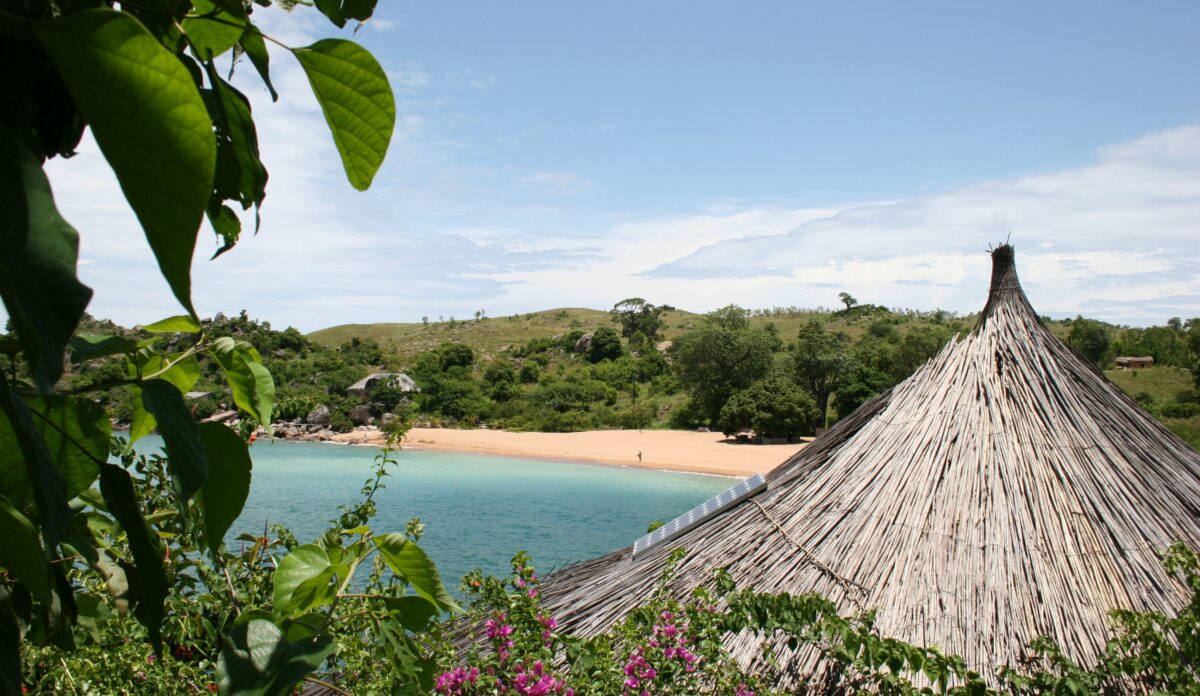
- Size: 118,484 km²
- Capital: Lilongwe
- Population: 20.4 million
- Independence: July 6, 1964
- National Language: Chichewa and English
Malawi is a country in southeastern Africa known for its unique features. One of its remarkable attractions is Lake Malawi, one of the African Great Lakes. The lake’s stunning beauty and biodiversity make it a must-visit destination for nature lovers and adventure seekers. With its crystal-clear waters, sandy beaches, and diverse marine life, Lake Malawi offers a perfect setting for water activities such as swimming, snorkeling, and kayaking. Additionally, the surrounding landscapes of Malawi, including national parks and wildlife reserves, provide opportunities for wildlife safaris and exploration. Whether you are looking for relaxation or adventure, Malawi has something to offer everyone.
Mali
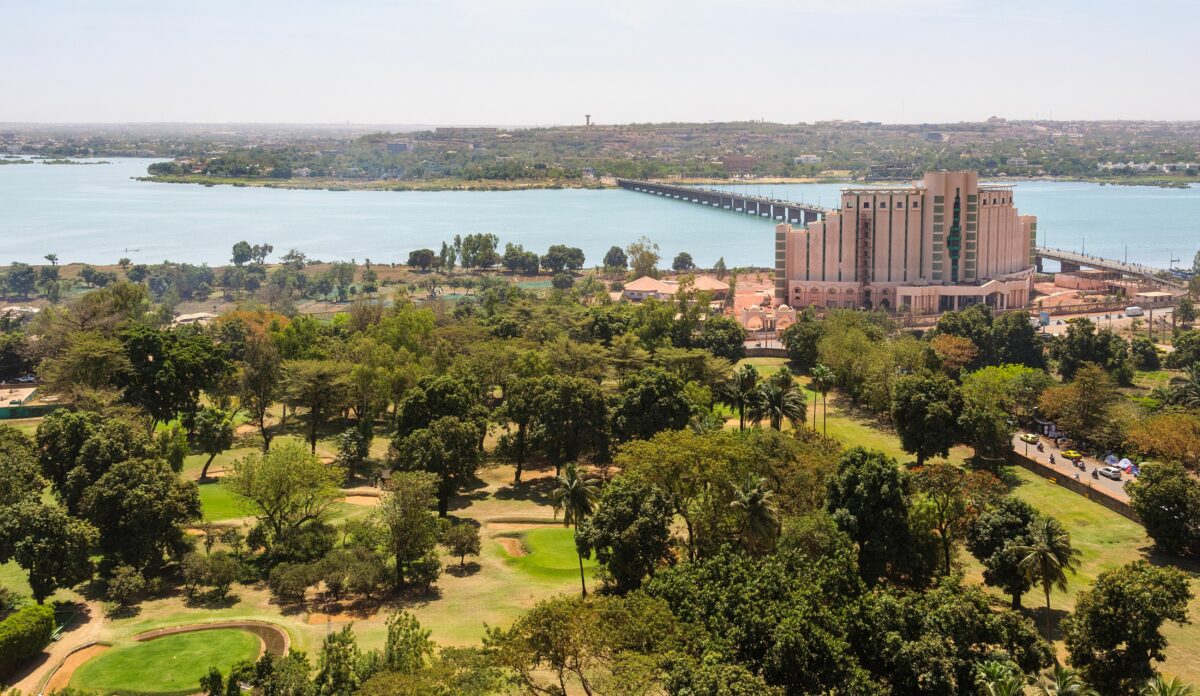
- Size: 1,240,192 km²
- Capital: Bamako
- Population: 23.6 million
- Independence: September 22, 1960
- National Language: French
Mali, located in West Africa, is rich in history and culture. It is home to the ancient city of Timbuktu, which was once a renowned center of Islamic learning. With its unique features and vibrant traditions, Mali offers visitors a glimpse into a fascinating and diverse heritage. From its stunning landscapes to its warm and welcoming people, Mali is a destination that captivates and inspires. Read Also: List of top 7 largest countries in Africa
Mauritania
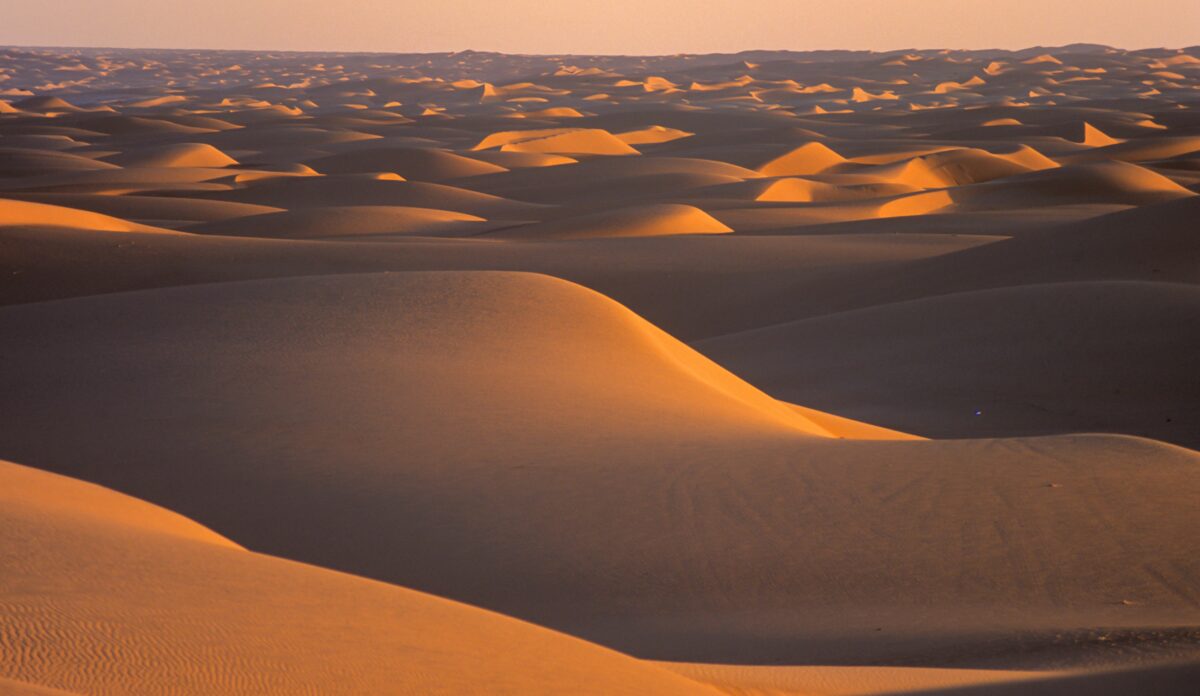
- Size: 1,030,700 km²
- Capital: Nouakchott
- Population: 4.9 million
- Independence: November 28, 1960
- National Language: Arabic
Mauritania, located in Northwest Africa, is known for its diverse landscapes and rich cultural heritage. Mauritania offers a unique blend of natural wonders, from the sweeping dunes of the Sahara Desert to the stunning coastline along the Atlantic Ocean. The Banc d’Arguin National Park, a UNESCO World Heritage site, is a testament to the country’s commitment to preserving its biodiversity. This pristine park is a vital breeding ground for migratory birds, attracting nature enthusiasts worldwide. With its captivating beauty and warm hospitality, Mauritania is a destination that leaves a lasting impression on visitors.
Mauritius
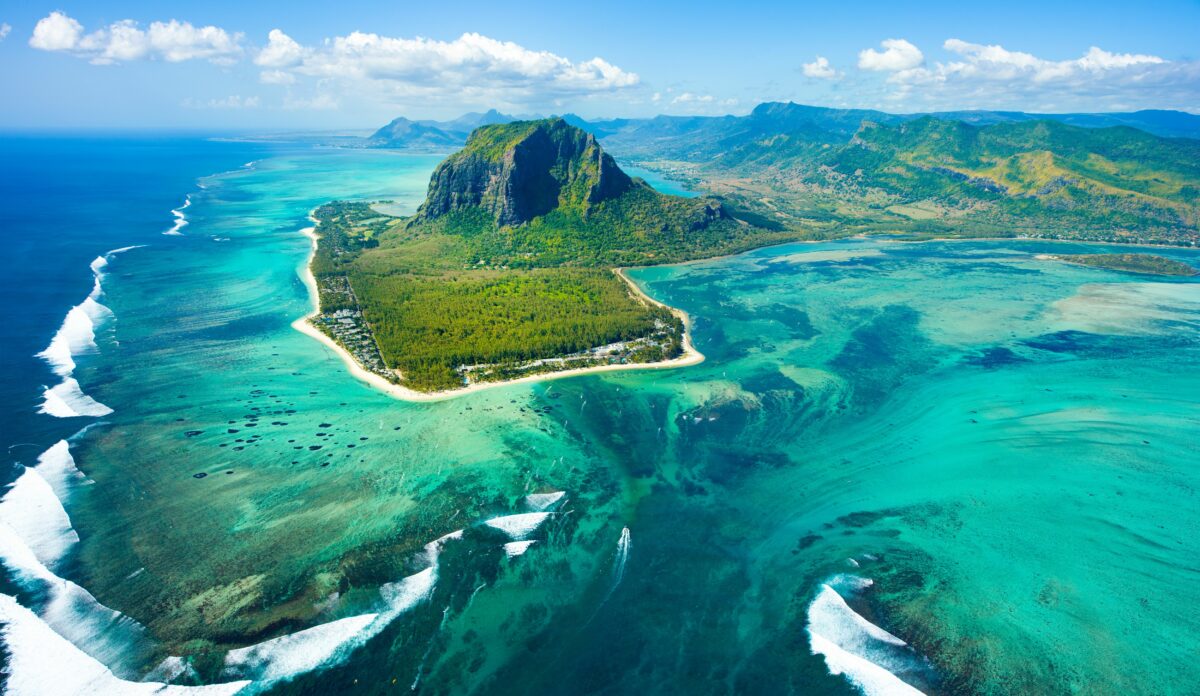
- Size: 2,040 km²
- Capital: Port Louis
- Population: 1.3 million
- Independence: March 12, 1968
- National Language: English
Mauritius is a beautiful island nation located in the Indian Ocean. Its pristine beaches, turquoise waters, and lush landscapes make it a paradise for nature lovers and adventure seekers. From the stunning Chamarel Plain, famous for its vibrant colored Earth, to the breathtaking waterfalls and diverse wildlife, Mauritius offers a unique and unforgettable experience for visitors. Whether you want to relax on the beach, explore the rich cultural heritage, or indulge in thrilling water sports, Mauritius has something for everyone.
Morocco
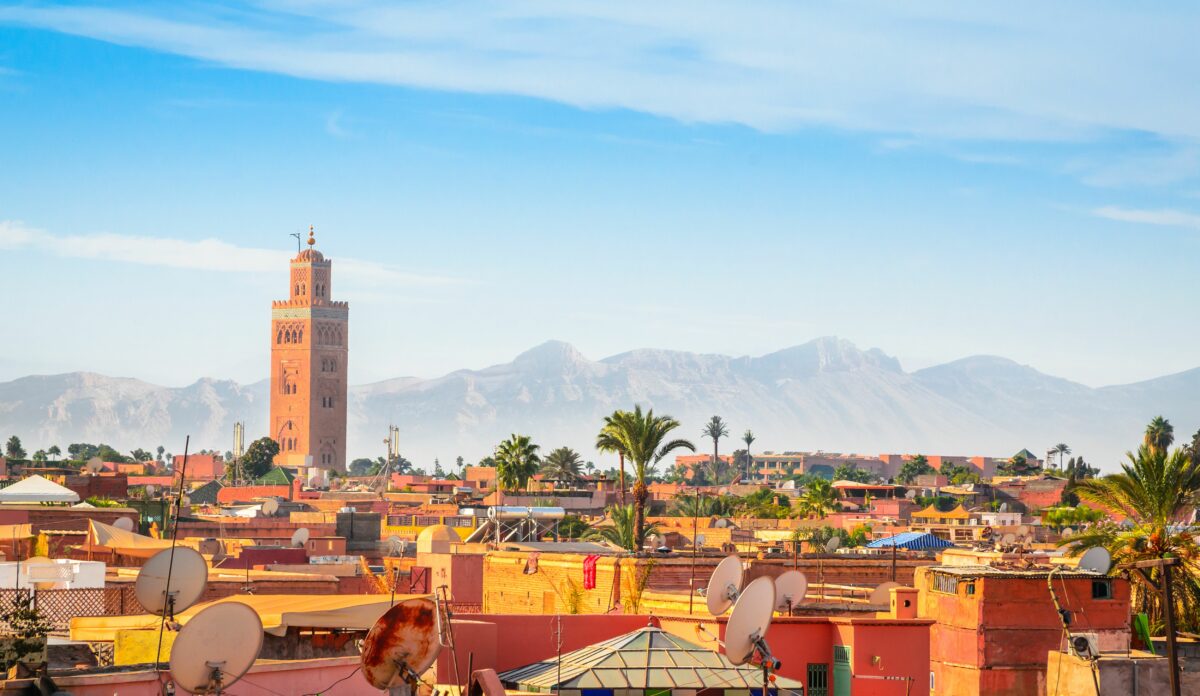
- Size: 446,550 km²
- Capital: Rabat
- Population: 38 million
- Independence: March 2, 1956
- National Language: Arabic and Amazigh
Morocco is a captivating country that offers a rich blend of history, culture, and natural beauty. From the bustling markets of Marrakech to the stunning landscapes of the Atlas Mountains and the Sahara Desert, everyone has something to discover. With its unique architecture, vibrant colors, and delicious cuisine, Morocco never fails to leave a lasting impression on its visitors. Whether exploring the ancient medinas, sipping mint tea in a traditional riad, or embarking on a desert adventure, Morocco is a destination that promises unforgettable experiences at every turn.
Mozambique
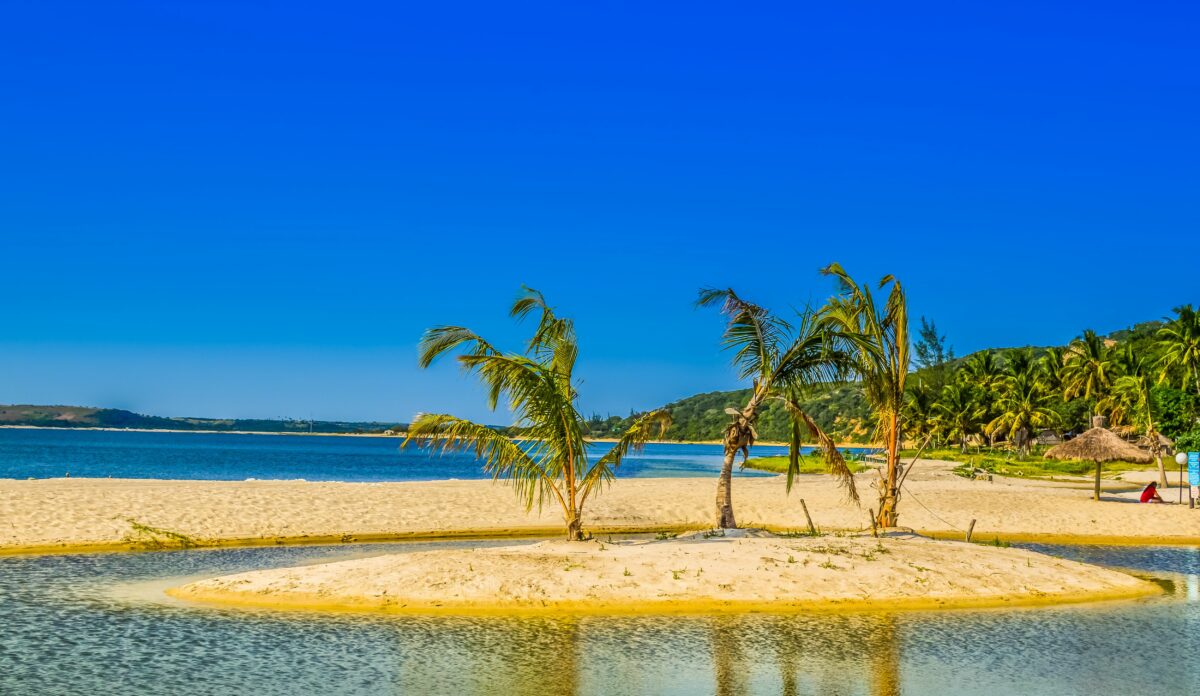
- Size: 801,590 km²
- Capital: Maputo
- Population: 34.3 million
- Independence: June 25, 1975
- National Language: Portuguese
Mozambique, located in southeastern Africa, is a captivating country with diverse landscapes and rich cultural heritage. With its stunning coastline along the Indian Ocean, Mozambique boasts pristine beaches and breathtaking coral reefs, like the Bazaruto Archipelago. This national park is a true gem, offering unique features such as picturesque islands, untouched nature, and vibrant marine life. Mozambique is a destination that promises unforgettable experiences and endless adventures for travelers seeking natural beauty and cultural encounters.
Namibia
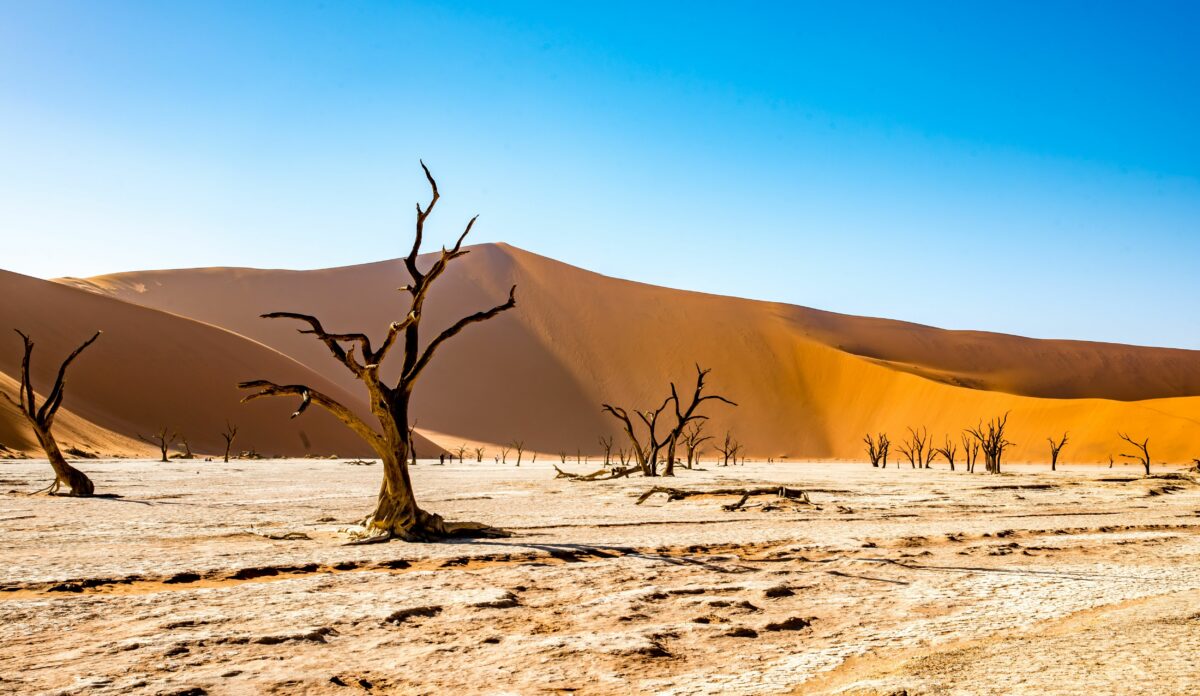
- Size: 825,615 km²
- Capital: Windhoek
- Population: 2.5 million
- Independence: March 21, 1990
- National Language: English
Namibia is a captivating country in southern Africa known for its unique features and breathtaking landscapes. From the otherworldly landscapes of Sossusvlei in the Namib Desert to the diverse wildlife of Etosha National Park, Namibia offers a truly unforgettable experience. With its rich cultural heritage and warm hospitality, Namibia is a destination that has something to offer for every traveler. Whether exploring the vast deserts, encountering fascinating wildlife, or immersing yourself in the local traditions, Namibia promises to leave you in awe of its natural beauty and wonders.
Niger
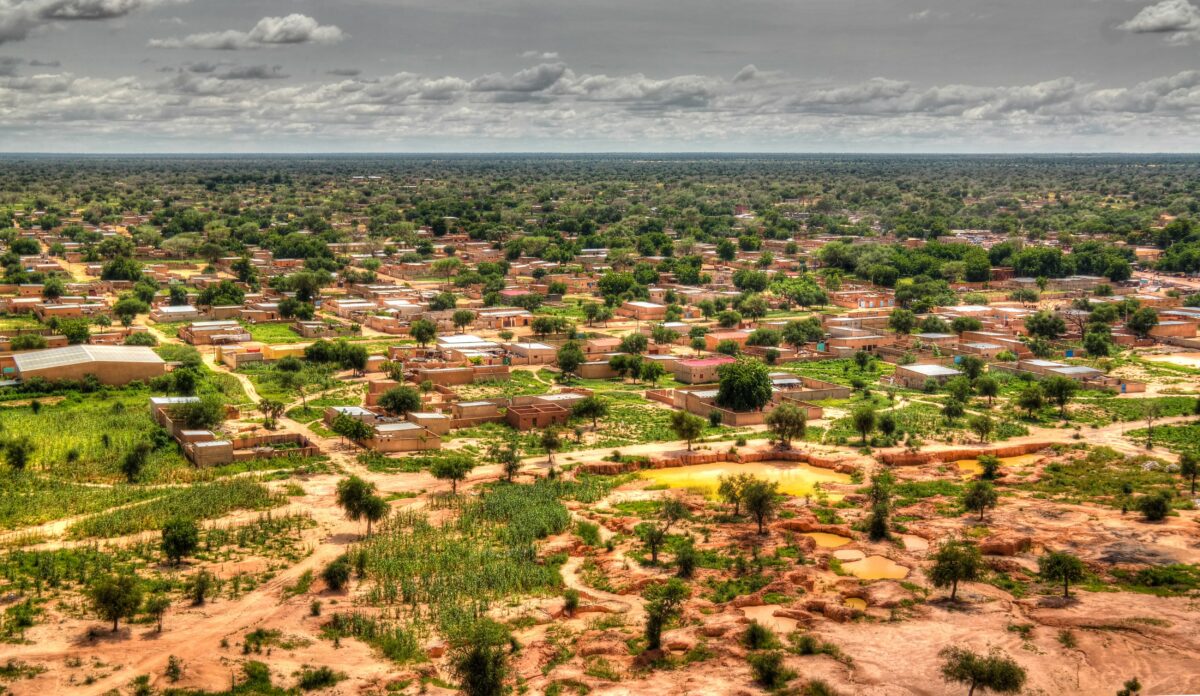
- Size: 1,267,000 km²
- Capital: Niamey
- Population: 27.6 million
- Independence: August 3, 1960
- National Language: French
Niger is a country located in West Africa. It is known for its diverse landscapes, including the Tenere Desert, one of the most remote places on Earth. With its rich cultural heritage and natural beauty, Niger offers a unique and captivating experience for visitors. From vibrant markets to ancient historic sites, this country has much to offer in terms of exploration and discovery.
Nigeria
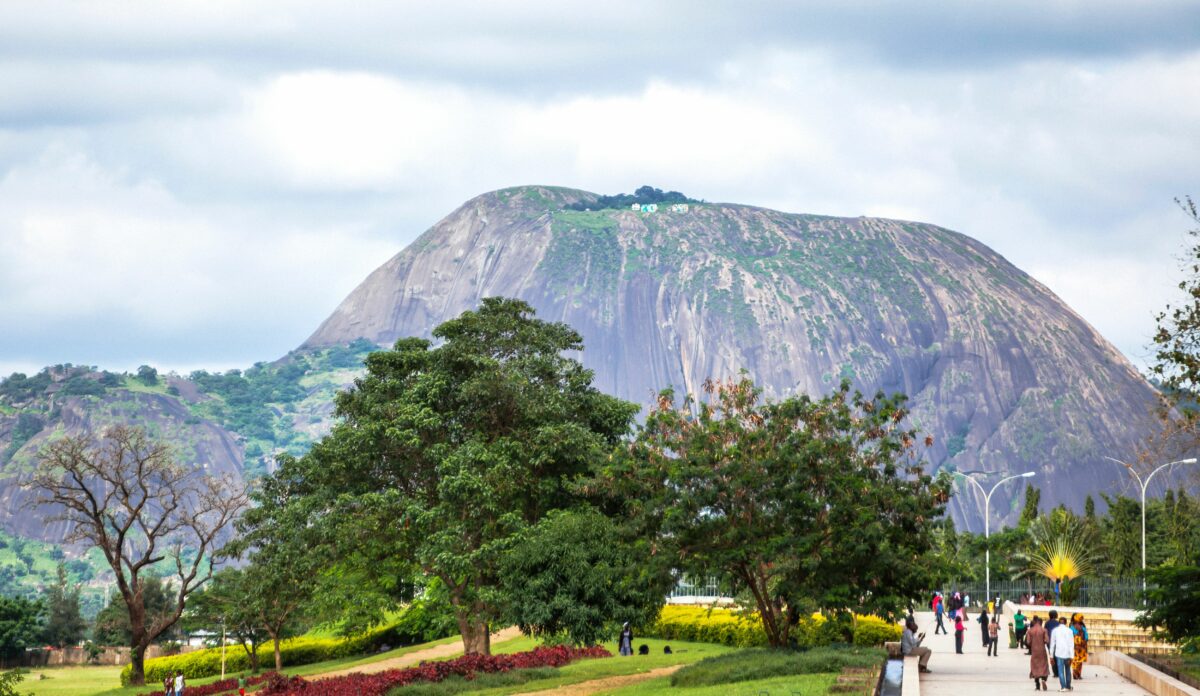
- Size: 923,768 km²
- Capital: Abuja
- Population: 223.8 million
- Independence: October 1, 1960
- National Language: English
Nigeria is a vibrant country located in West Africa. Known for its rich cultural heritage, diverse population, and breathtaking landscapes, Nigeria offers a unique blend of history, traditions, and natural wonders. From the bustling cities to the serene countryside, Nigeria mesmerizes visitors with its vibrant markets, delicious cuisine, and warm hospitality. With iconic landmarks like Zuma Rock and a wealth of natural beauty, Nigeria has something to offer every traveler seeking an unforgettable experience.
Rwanda
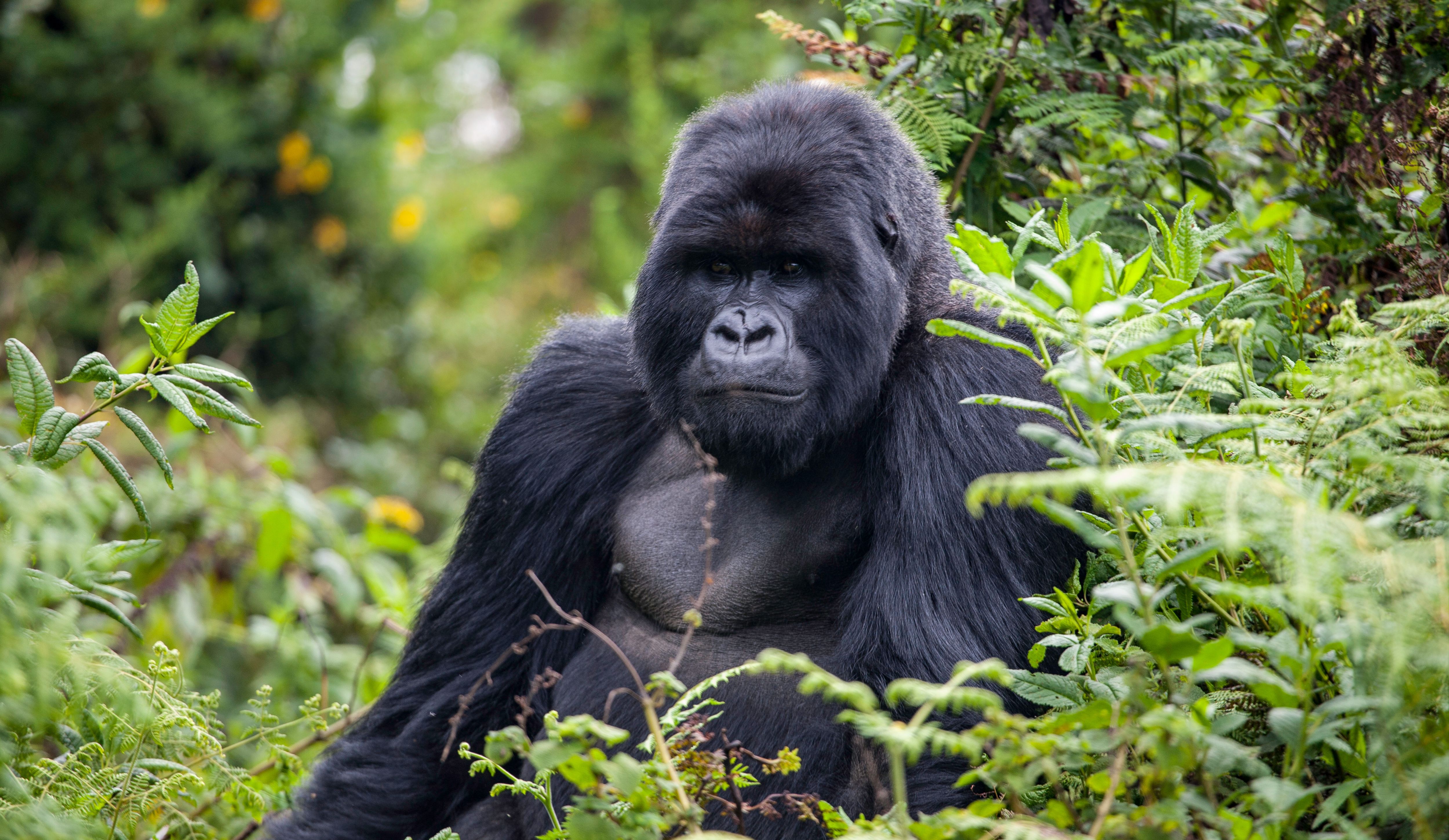
- Size: 26,338 km²
- Capital: Kigali
- Population: 14.2 million
- Independence: July 1, 1962
- National Language: Kinyarwanda, French, and English
Rwanda is a captivating country known for its breathtaking landscapes and vibrant culture. With its unique features, like the Volcanoes National Park, home to the endangered mountain gorillas, Rwanda offers an unforgettable experience for nature enthusiasts and wildlife lovers. The country’s rich history, warm hospitality, and stunning natural beauty make it a must-visit destination for anyone seeking adventure and cultural exploration.
Sao Tome and Principe
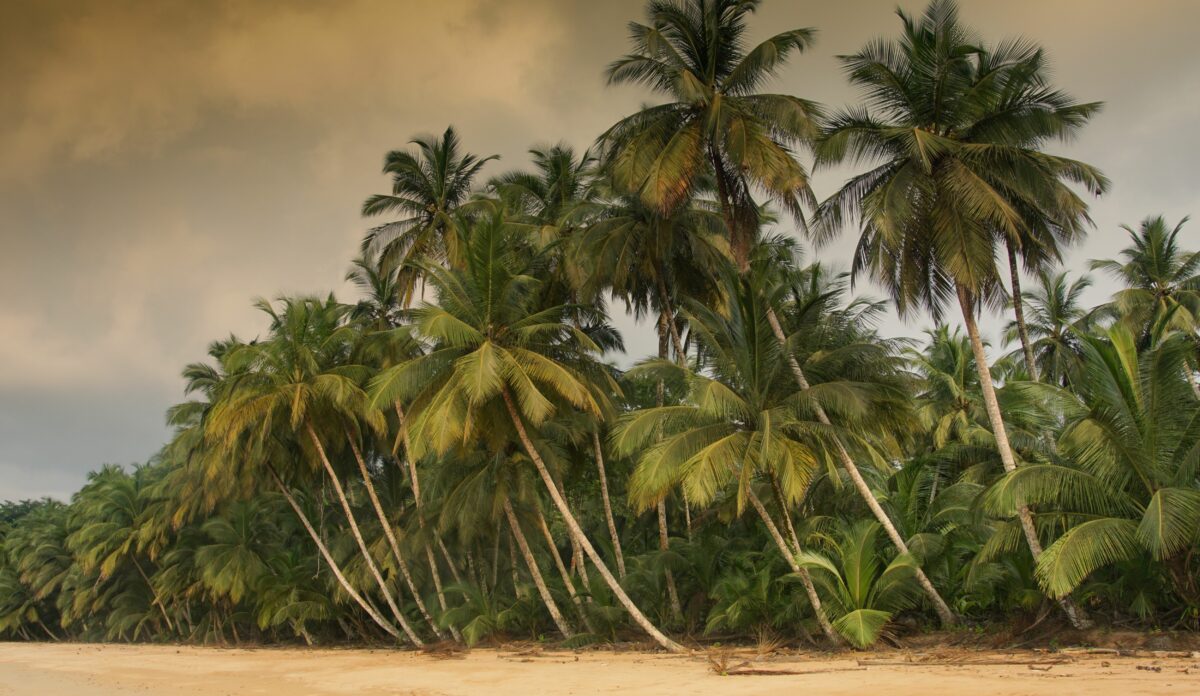
- Size: 1,001 km²
- Capital: Sao Tome
- Population: 233,759
- Independence: July 12, 1975
- National Language: Portuguese
Sao Tome and Principe is a beautiful island nation located in Central Africa. It is known for its pristine beaches, lush rainforests, and unique cultural heritage. One of its notable features is the Obo National Park, a UNESCO World Heritage site that boasts remarkable biodiversity. The country offers a unique blend of natural wonders and rich history, making it a captivating destination for travelers seeking an off-the-beaten-path experience.
Senegal
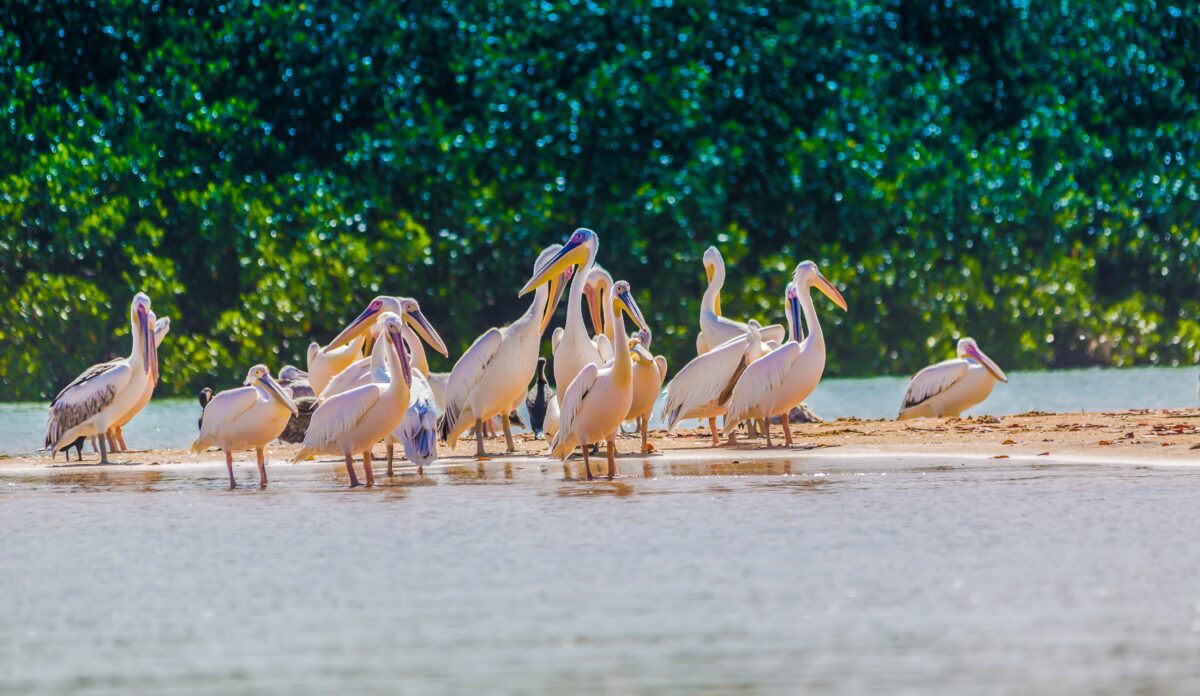
- Size: 196,722 km²
- Capital: Dakar
- Population: 17.9 million
- Independence: April 4, 1960
- National Language: French
Senegal is a vibrant country located in West Africa. It is known for its rich culture, beautiful landscapes, and warm hospitality. One of its unique features is Goree Island, a UNESCO World Heritage site that holds a dark history tied to the slave trade. With its diverse traditions and historical significance, Senegal offers a captivating experience for visitors from around the world.
Seychelles
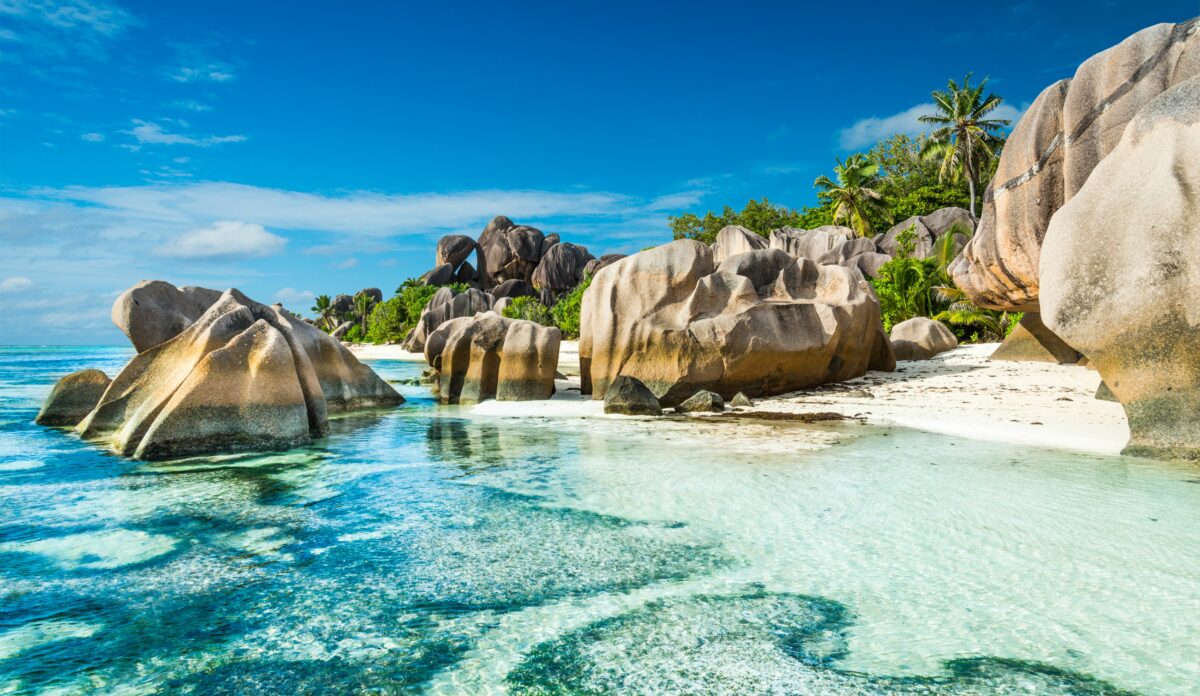
- Size: 459 km²
- Capital: Victoria
- Population: 107,914
- Independence: June 29, 1976
- National Language: Seychellois Creole, English, and French
Seychelles is a stunning archipelago in the Indian Ocean, known for its breathtaking beauty and pristine beaches. Its crystal-clear turquoise waters, lush tropical forests, and vibrant marine life make it a paradise for nature lovers and beach enthusiasts. Seychelles offers a unique experience with its diverse ecosystem, including the Aldabra Atoll, a UNESCO World Heritage site. Whether you are seeking relaxation on secluded beaches or exploring the rich biodiversity, Seychelles has something to offer for everyone.
Sierra Leone
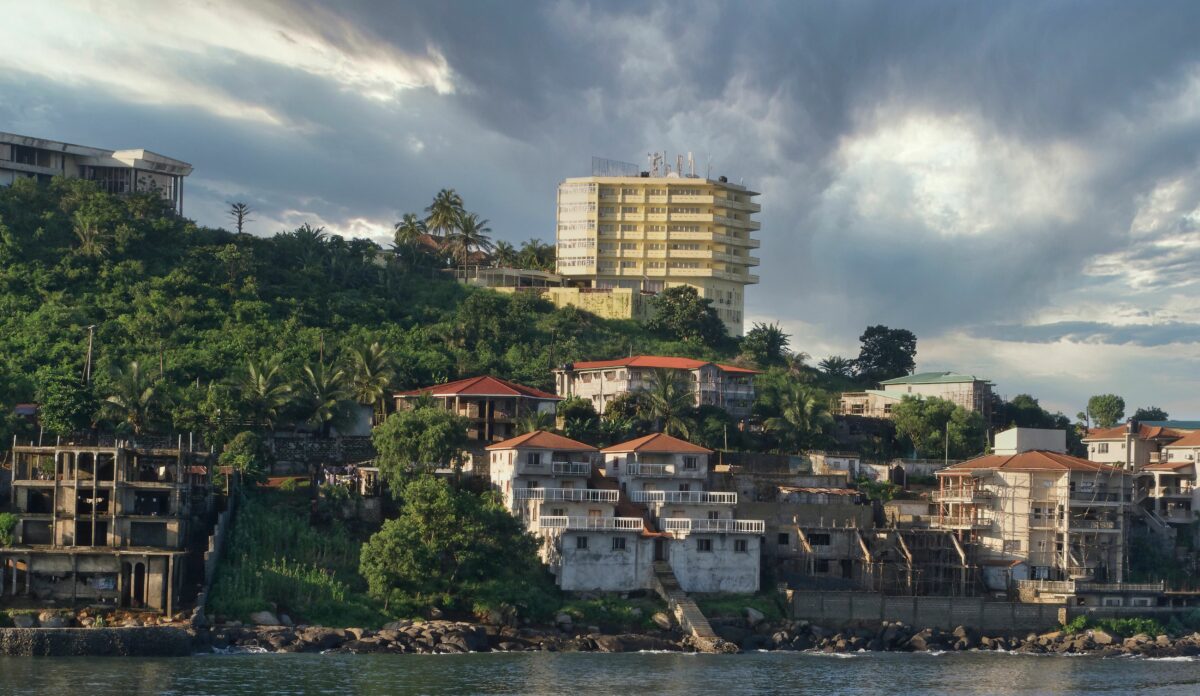
- Size: 71,740 km²
- Capital: Freetown
- Population: 8.8 million
- Independence: April 27, 1961
- National Language: English
Sierra Leone, a country on the west coast of Africa, is known for its stunning natural beauty and rich cultural heritage. From its pristine beaches and lush rainforests to its vibrant music and dance traditions, Sierra Leone offers a unique experience for travelers. With its warm and welcoming people, delicious local cuisine, and historical sites like the Tacugama Chimpanzee Sanctuary, dedicated to conserving chimpanzees, Sierra Leone is a destination that captivates and delights visitors from around the world.
Somalia
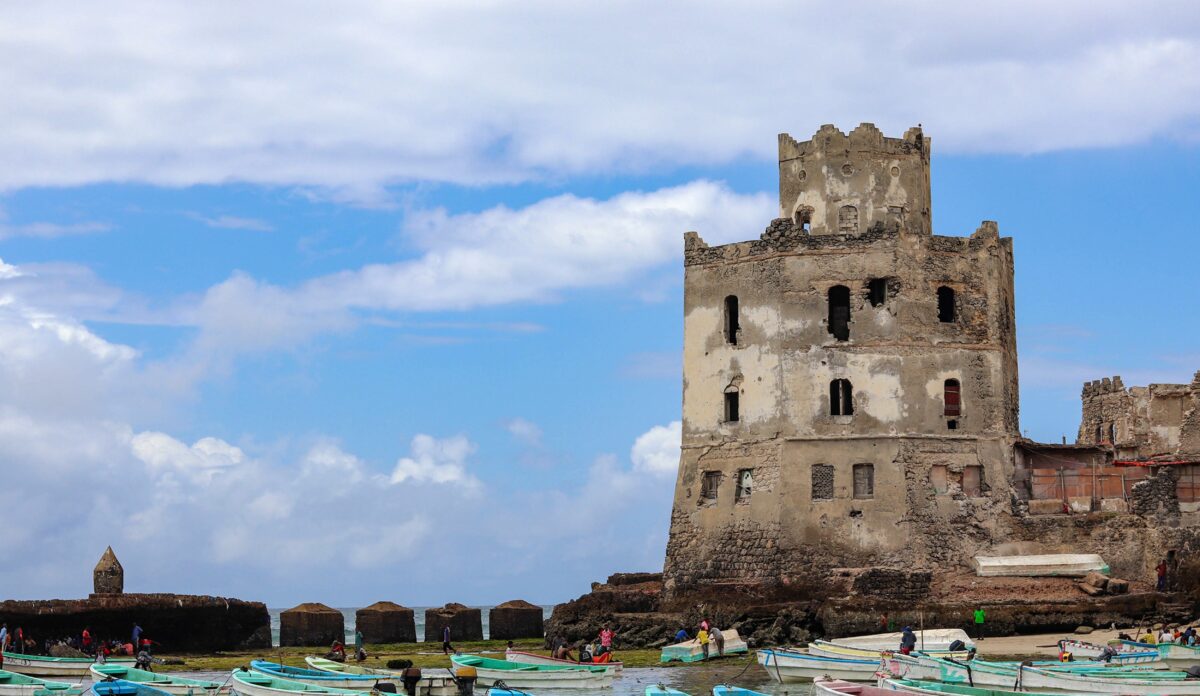
- Size: 637,657 km²
- Capital: Mogadishu
- Population: 18.14 million
- Independence: July 1, 1960
- National Language: Somali, Arabic
Somalia is a country in the Horn of Africa, known for its rich history and diverse culture. It is home to unique attractions like Laas Geel, a complex of caves displaying ancient rock art for over 5,000 years. The paintings found in Laas Geel provide glimpses into daily life during that time, offering valuable insights into the region’s past. With its fascinating heritage and natural beauty, Somalia is worth exploring and appreciating.
South Africa
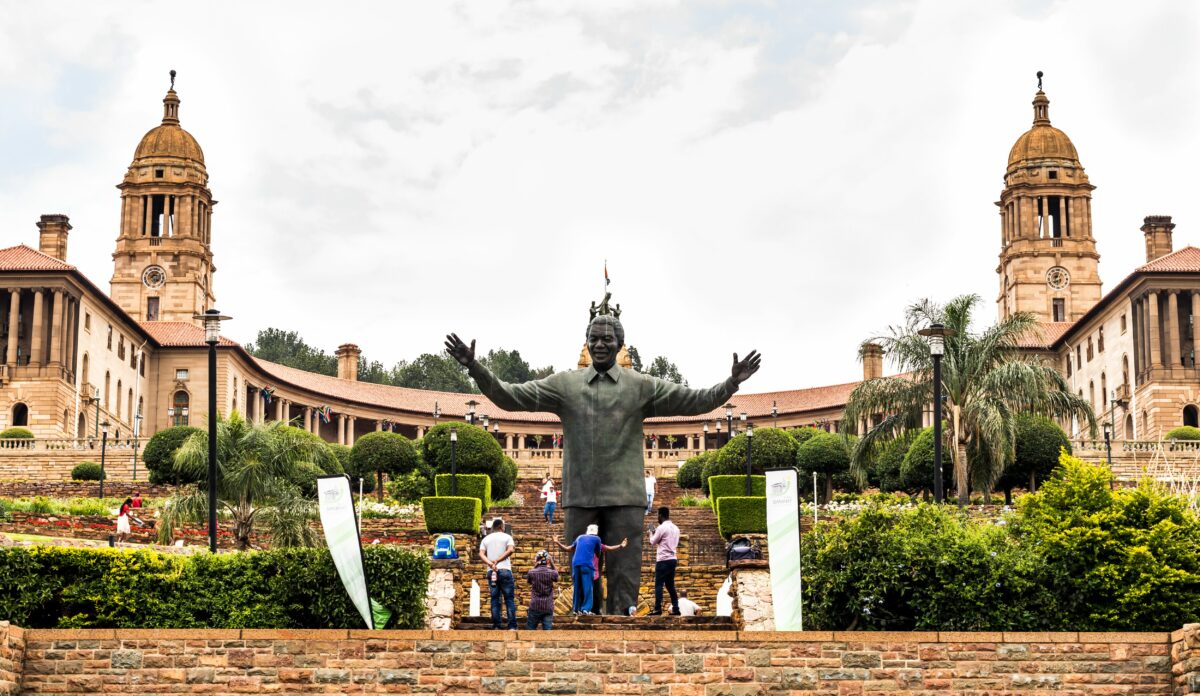
- Size: 1,221,037 km²
- Capital: Pretoria (administrative), Bloemfontein (judicial), Cape Town (legislative)
- Population: 60.14 million
- Independence: May 31, 1910 (Union of South Africa), April 27, 1994 (end of apartheid)
- National Language: 11 official languages, including Afrikaans, English, isiZulu, and isiXhosa
South Africa is a country known for its diverse landscapes and vibrant culture. From the stunning Table Mountain in Cape Town to the vast wildlife reserves of Kruger National Park, there is something for everyone to explore and enjoy. With a rich history and a melting pot of different cultures, South Africa offers visitors a unique and unforgettable experience. Whether you’re seeking adventure, relaxation, or a glimpse into the country’s fascinating heritage, South Africa has it all.
South Sudan
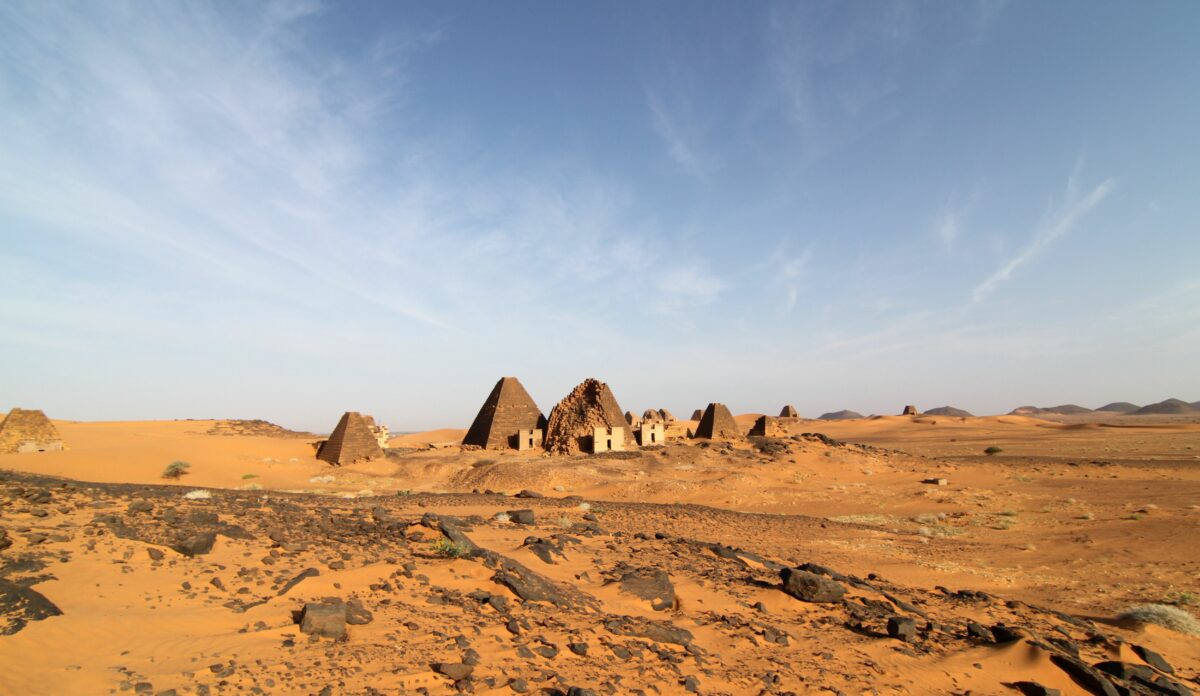
- Size: 644,329 km²
- Capital: Juba
- Population: 14.7 million
- Independence: July 9, 2011
- National Language: English
South Sudan has a unique feature: Sudd, one of the largest wetlands in the world. This vast wetland is crucial to the region’s ecosystem, supporting various plant and animal species. It is a vital water source and provides a habitat for numerous migratory birds. Sudd is truly a natural wonder that showcases South Sudan’s remarkable biodiversity.
Sudan
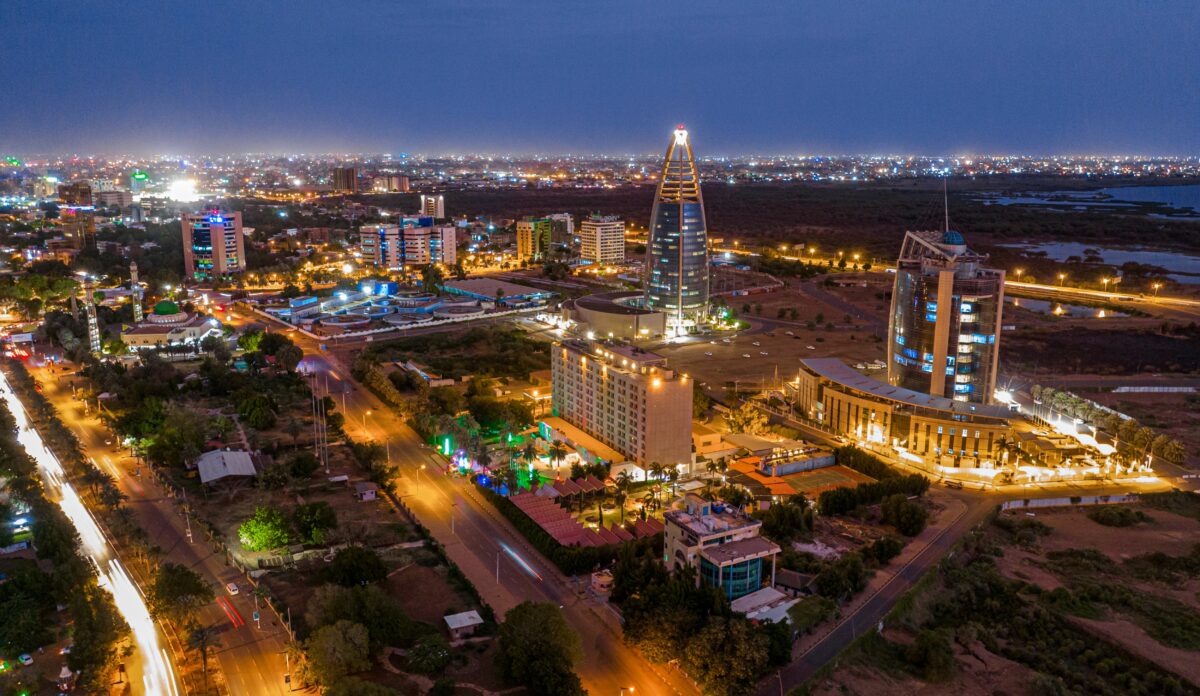
- Size: 1,886,068 km²
- Capital: Khartoum
- Population: 49.2 million
- Independence: January 1, 1956
- National Language: Arabic and English
Sudan, a country in northeastern Africa, is known for its rich history and cultural heritage. Sudan offers a unique blend of natural beauty and archaeological wonders, from the magnificent Meroe Pyramids and ancient Nubian pyramids near the Nile to its diverse landscapes encompassing deserts, mountains, and the Nile River. With a vibrant culture and warm hospitality, Sudan invites visitors to explore its hidden treasures and experience its fascinating traditions.
Tanzania
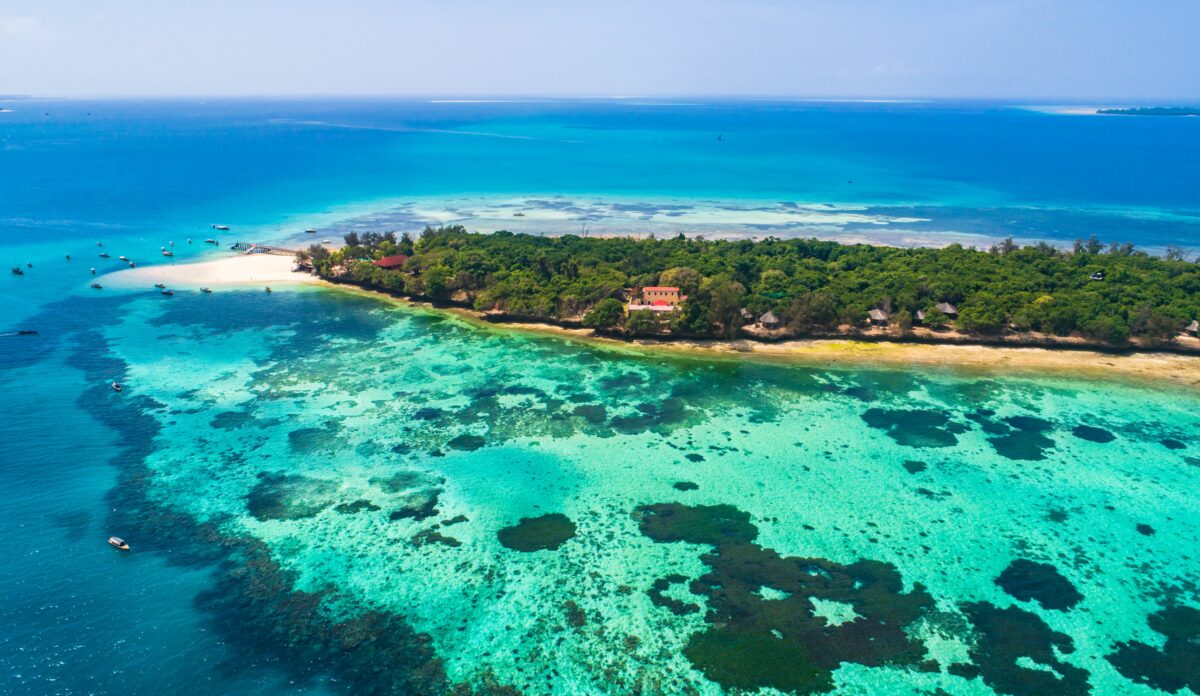
- Size: 945,087 km²
- Capital: Dodoma (official), Dar es Salaam (largest city)
- Population: 68.27 million
- Independence: December 9, 1961
- National Language: Swahili and English
Tanzania is a country known for its natural wonders and diverse wildlife. From the iconic Serengeti National Park, where the annual wildebeest migration occurs, to the majestic Mount Kilimanjaro, the highest peak in Africa, Tanzania offers breathtaking landscapes and unforgettable experiences. With its rich cultural heritage and vibrant cities like Dar es Salaam and Zanzibar, Tanzania is a destination that combines adventure, history, and natural beauty. Whether exploring the wildlife reserves, relaxing on the pristine beaches, or immersing oneself in the local culture, Tanzania has something for everyone to enjoy.
Togo
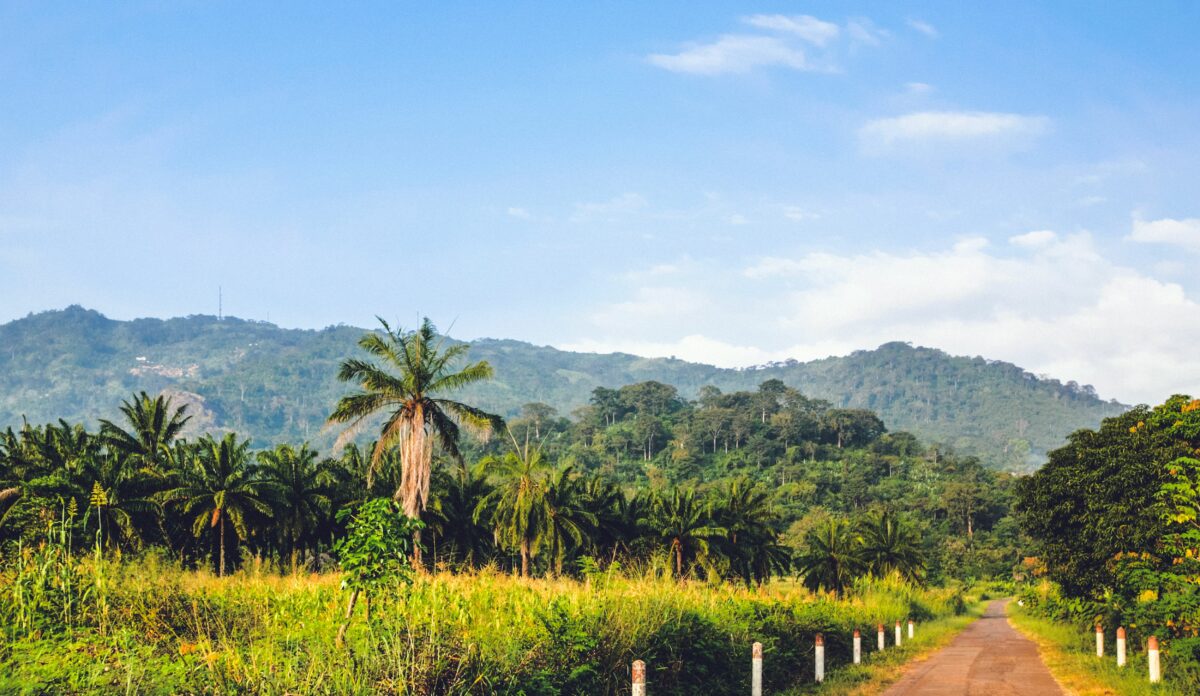
- Size: 56,785 km²
- Capital: Lome
- Population: 8 million
- Independence: April 27, 1960
- National Language: French
Togo, a country in West Africa, offers a unique experience for nature lovers. One of its notable attractions is the Fazao-Malfakassa National Park, renowned for its rich biodiversity and stunning landscapes. From the diverse flora to the fascinating fauna, Togo showcases the beauty of the natural world. Beyond its natural wonders, Togo also boasts a vibrant culture, warm hospitality, and a rich history to explore.
Tunisia
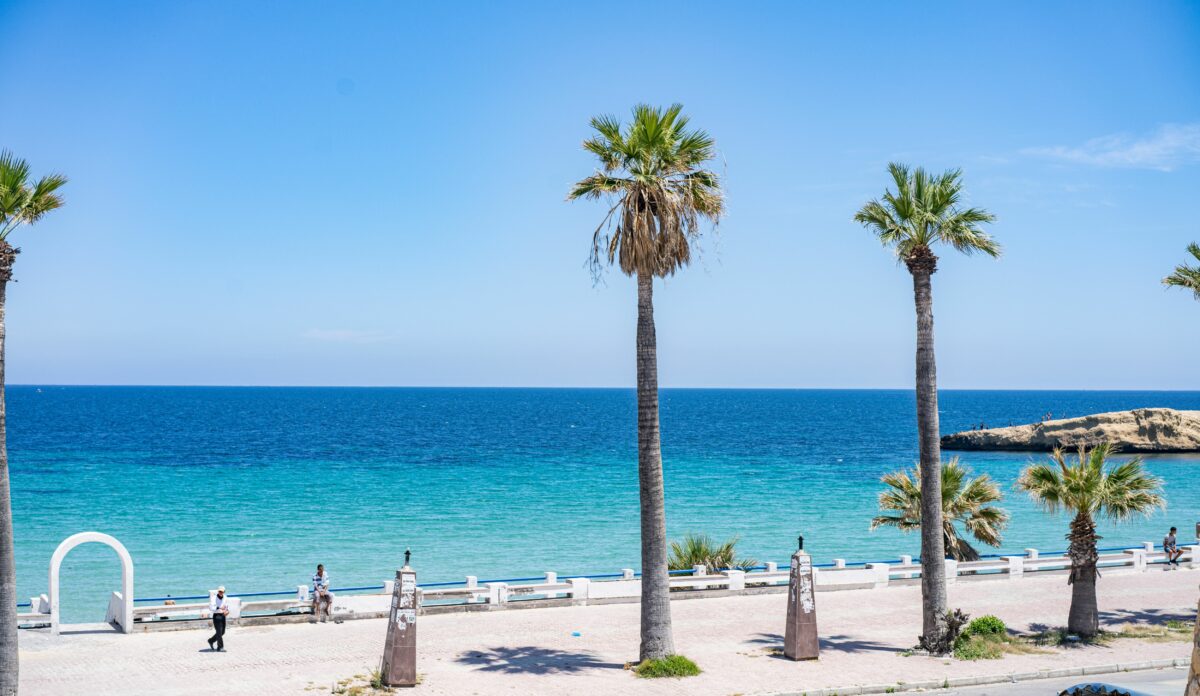
- Size: 163,610 km²
- Capital: Tunis
- Population: 12.5 million
- Independence: March 20, 1956
- National Language: Arabic and French
Tunisia is a captivating country nestled in North Africa. With its rich history, diverse landscapes, and warm hospitality, it offers a unique experience for travelers. From the ancient city of Carthage, with its historical ruins, to the stunning beaches of the Mediterranean coast and the vibrant souks of Tunis, there is something for everyone to explore and enjoy in Tunisia. With its blend of ancient traditions and modern influences, Tunisia is a destination that promises to leave a lasting impression.
Uganda
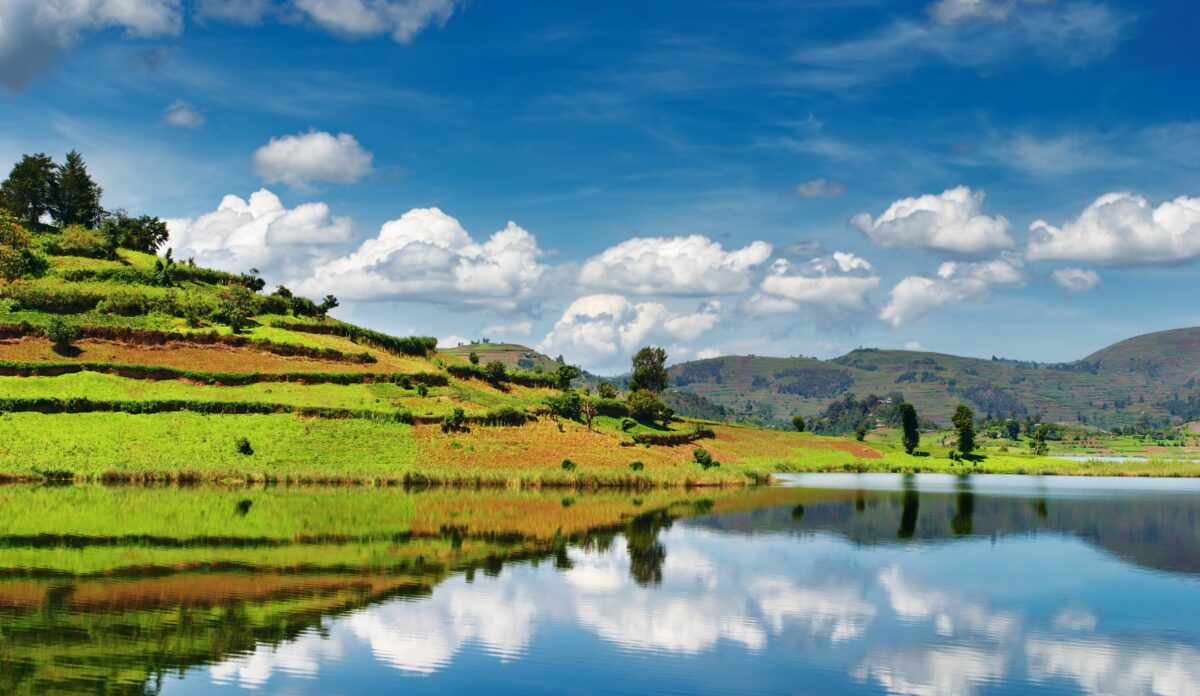
- Size: 236,040 km²
- Capital: Kampala
- Population: 49.6 million
- Independence: October 9, 1962
- National Language: English and Swahili
Uganda, located in East Africa, is known for its diverse landscapes and rich wildlife. From the stunning savannahs of Queen Elizabeth National Park to the mighty Nile River, Uganda offers nature lovers a unique and unforgettable experience. One of its most remarkable features is the Bwindi Impenetrable Forest, which is home to half of the world’s mountain gorillas. Visitors to Uganda can also explore vibrant cities, immerse themselves in the rich culture, and enjoy warm hospitality. With its natural beauty and incredible wildlife, Uganda is a destination that captivates and leaves a lasting impression.
Zambia
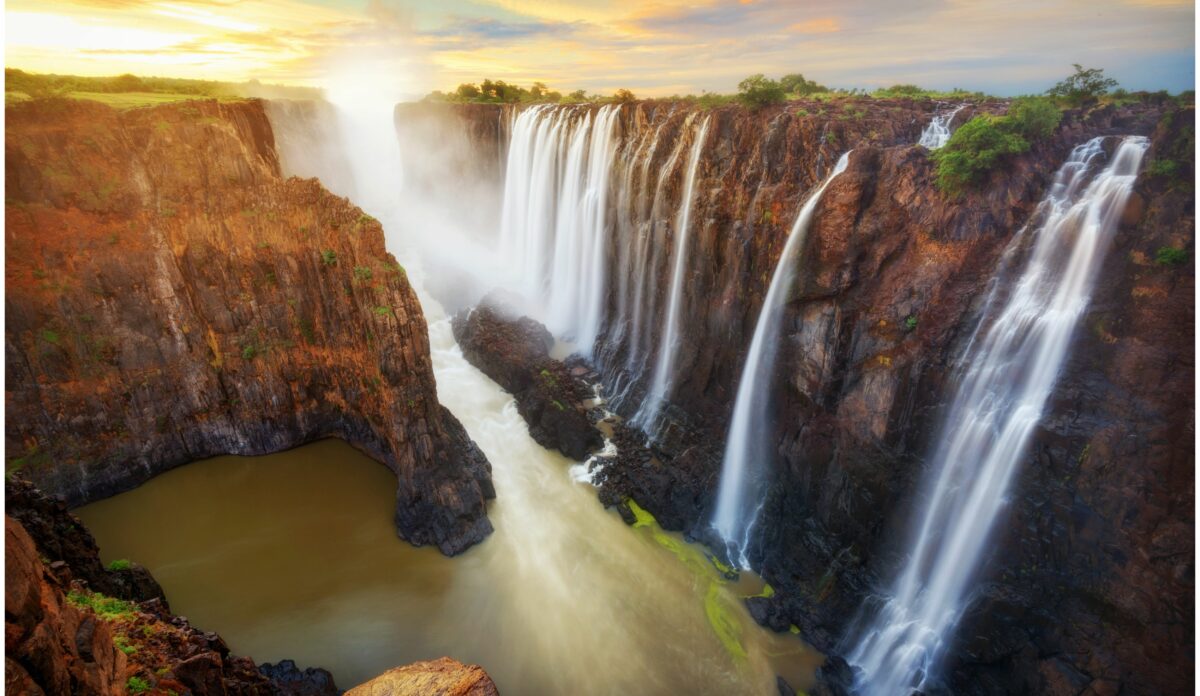
- Size: 752,614 km²
- Capital: Lusaka
- Population: 20.2 million
- Independence: October 24, 1964
- National Language: English
Zambia is a country known for its stunning natural beauty and wildlife. It is home to Victoria Falls, one of the world’s largest and most famous waterfalls. With its unique feature, Zambia attracts visitors from all over the globe who come to witness the awe-inspiring power and beauty of this natural wonder. In addition to Victoria Falls, Zambia offers diverse landscapes, national parks, and a rich cultural heritage, making it a must-visit destination for nature enthusiasts and adventure seekers alike.
Zimbabwe
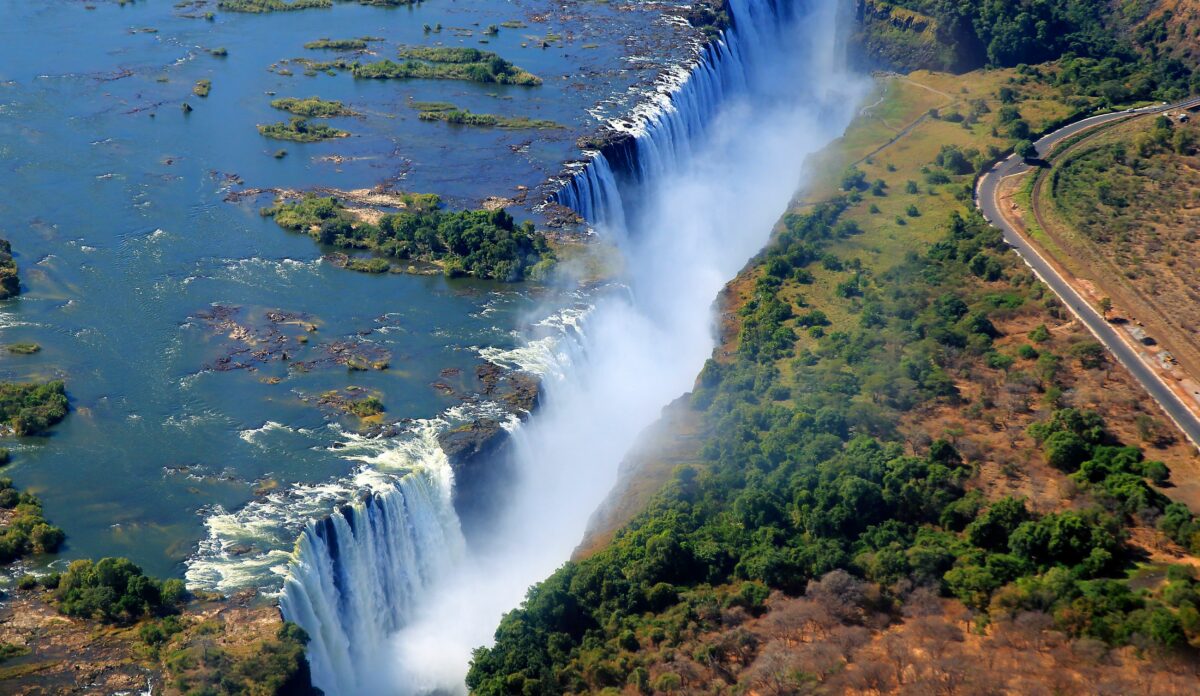
- Size: 390,757 km²
- Capital: Harare
- Population: 16.81 million
- Independence: April 18, 1980
- National Language: English and Shona
Zimbabwe, located in southern Africa, is known for its rich history and diverse natural beauty. From the majestic Victoria Falls to the captivating Great Zimbabwe ruins, a UNESCO World Heritage site, Zimbabwe offers a unique blend of cultural heritage and stunning landscapes. With a vibrant mix of wildlife, including elephants, lions, and rhinos, and warm and welcoming people, Zimbabwe is a destination that leaves a lasting impression.
References

